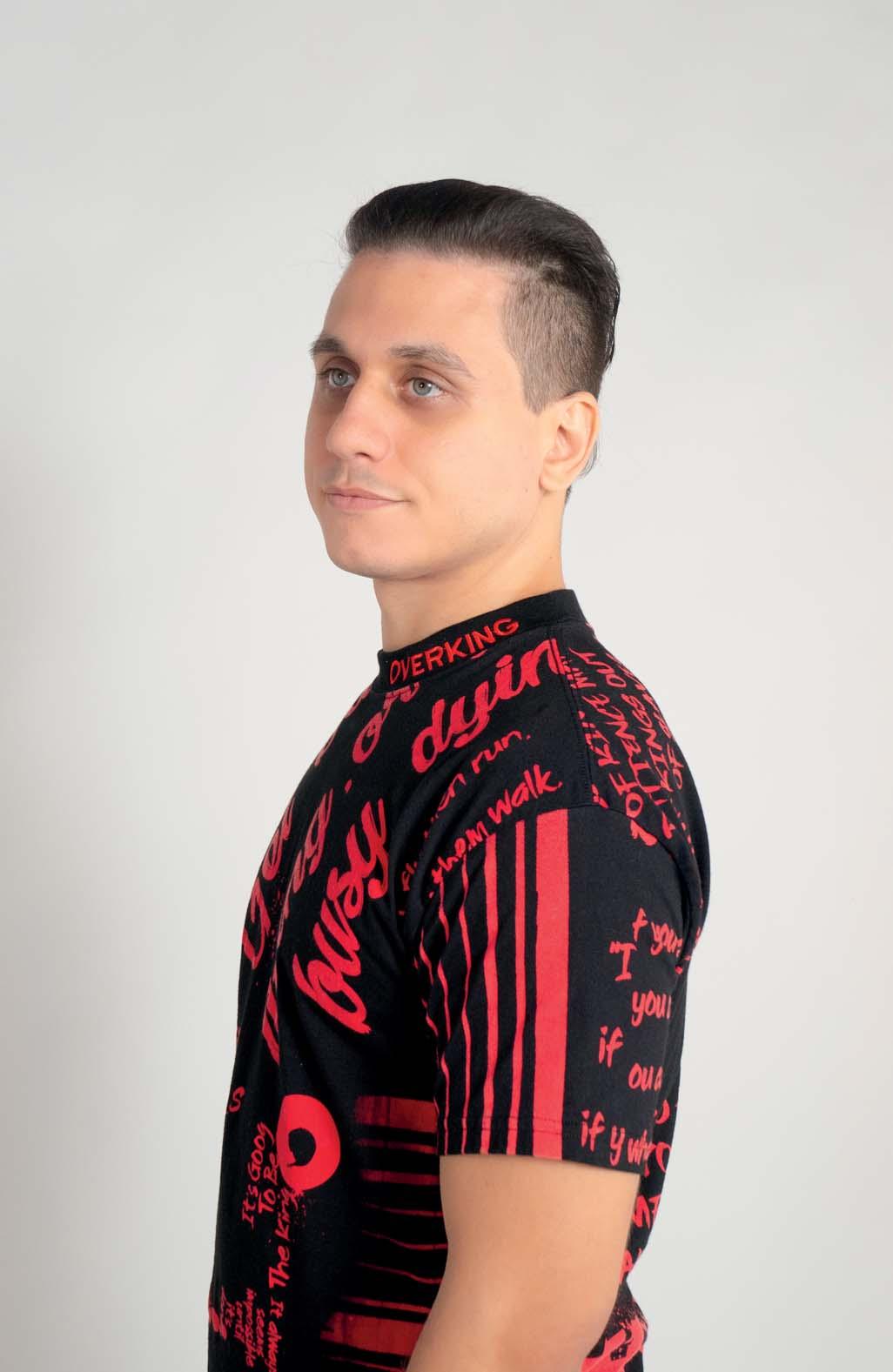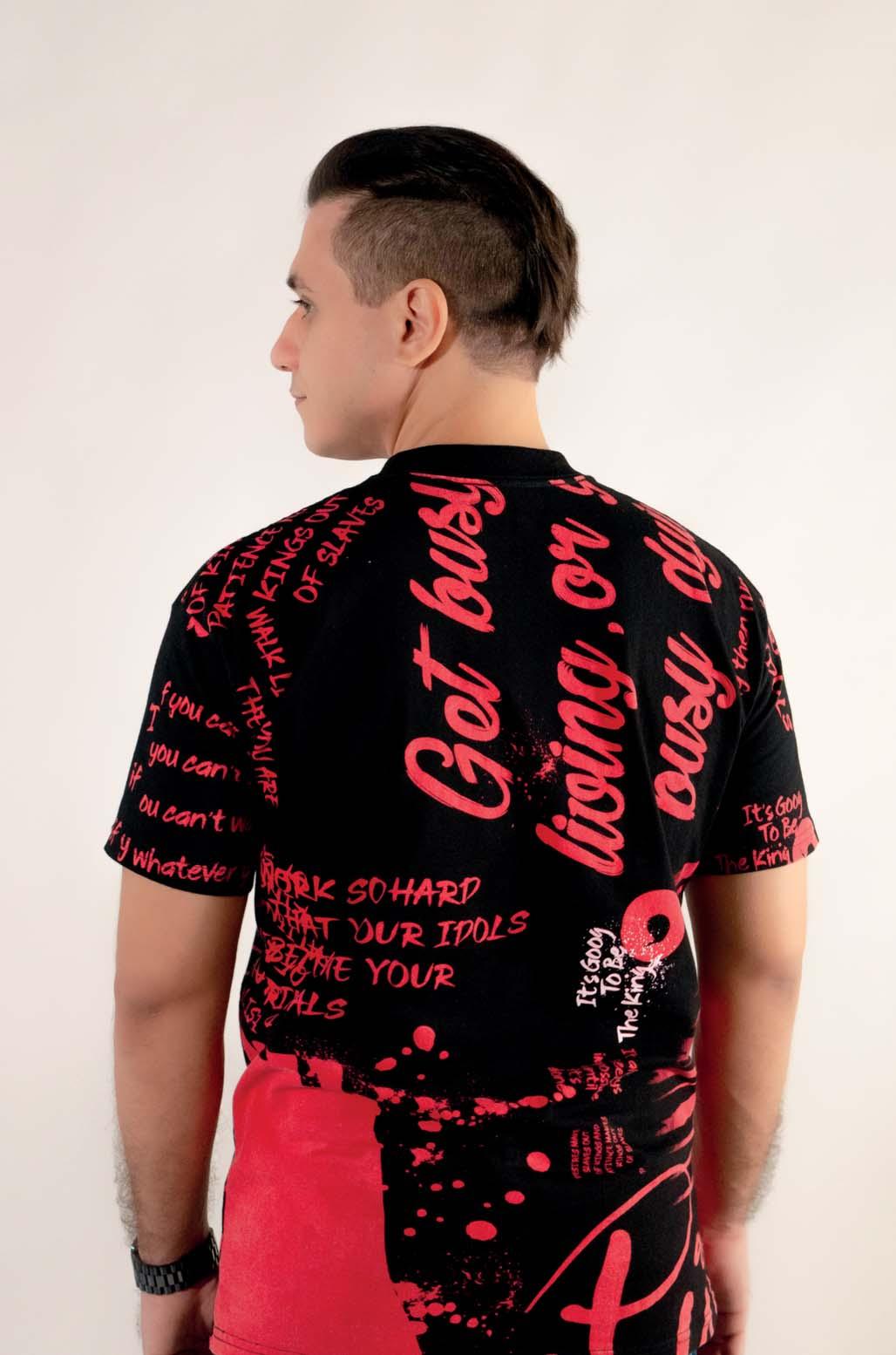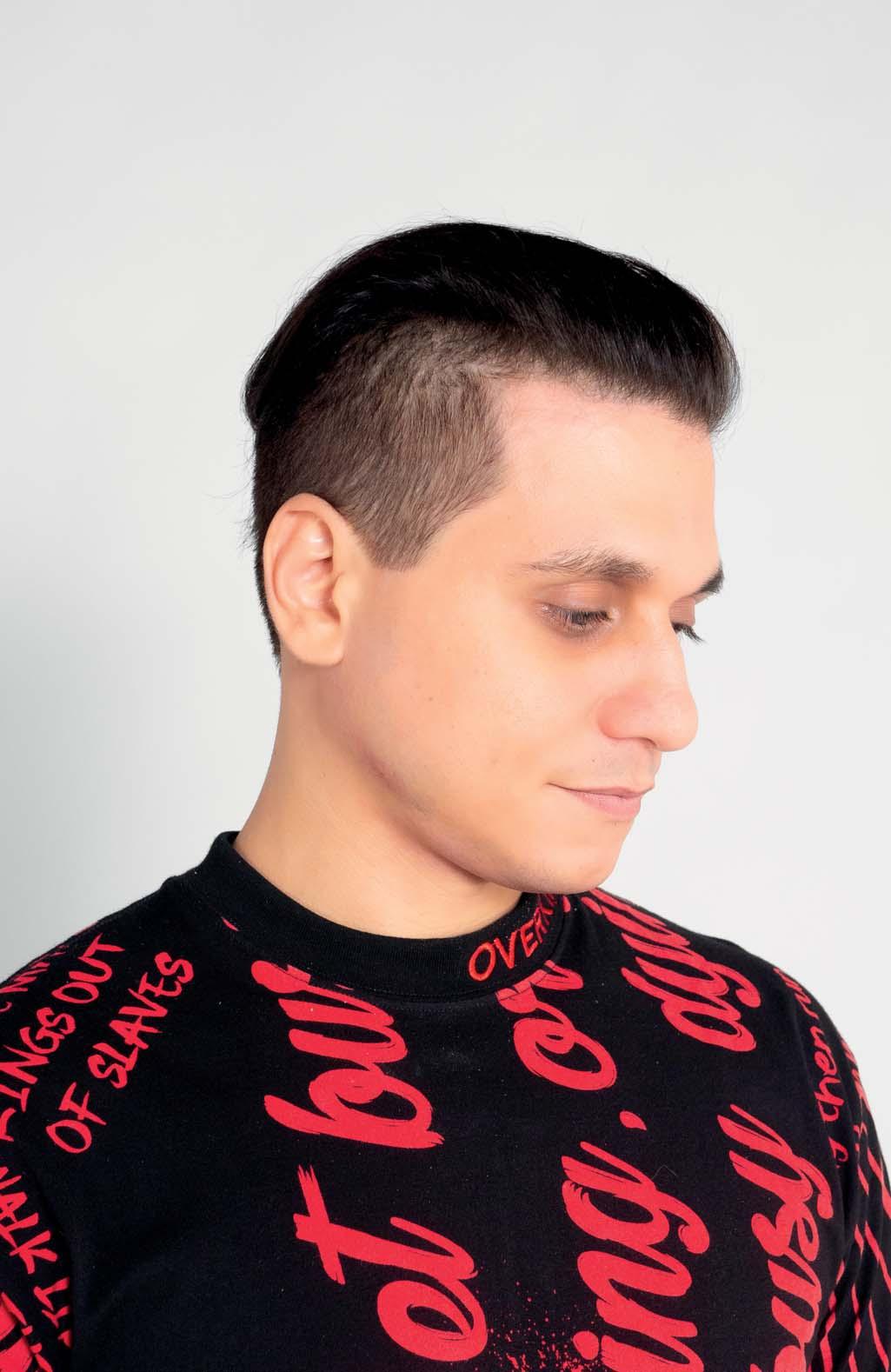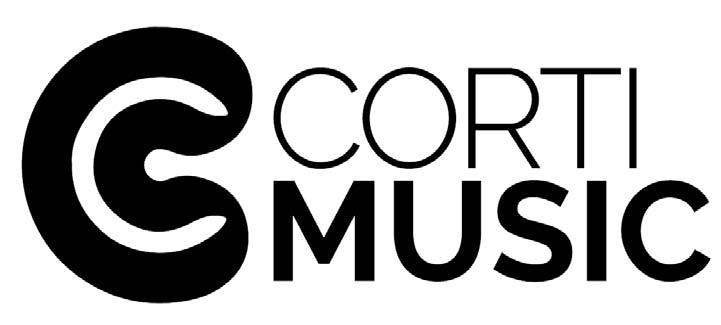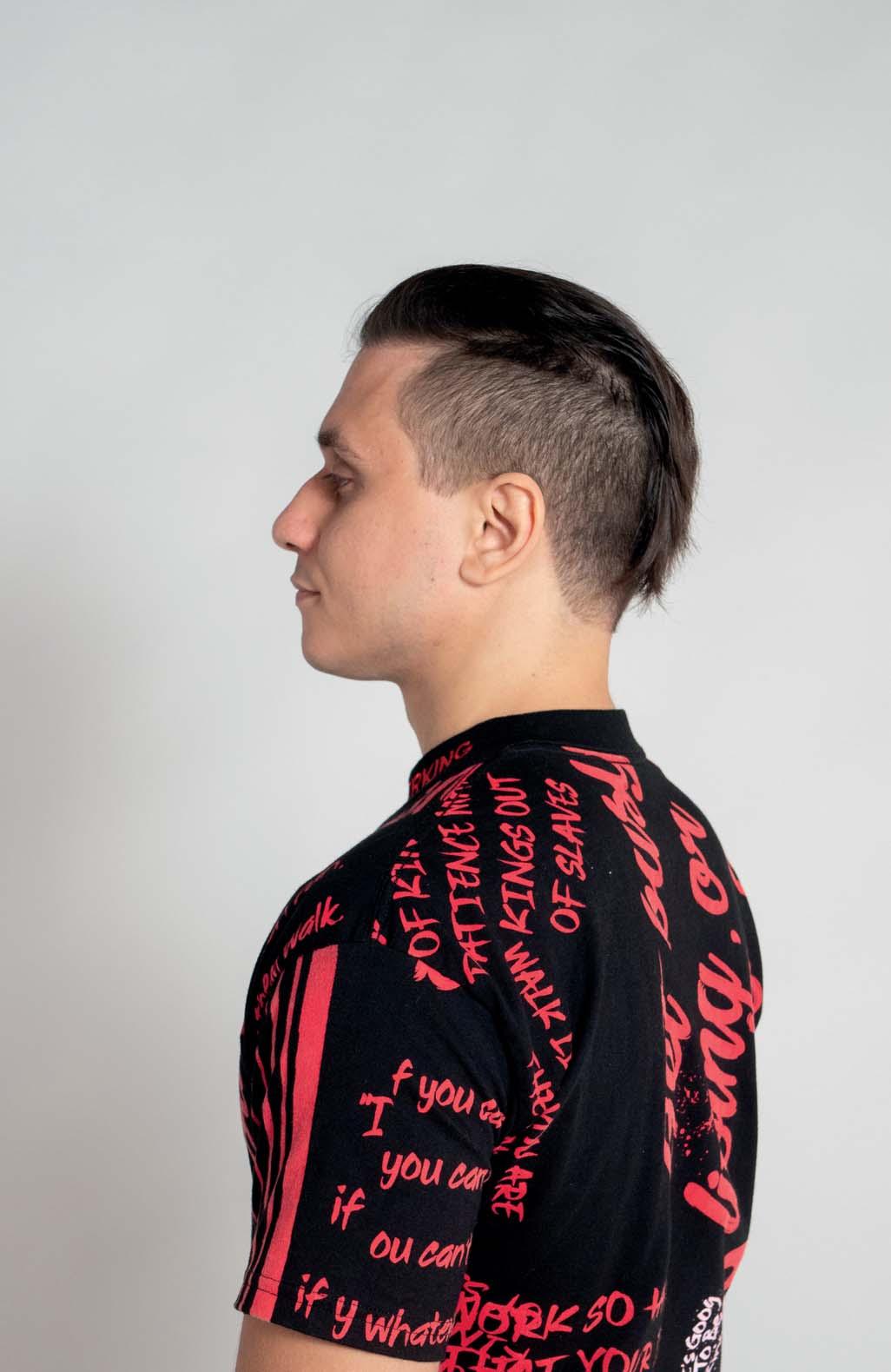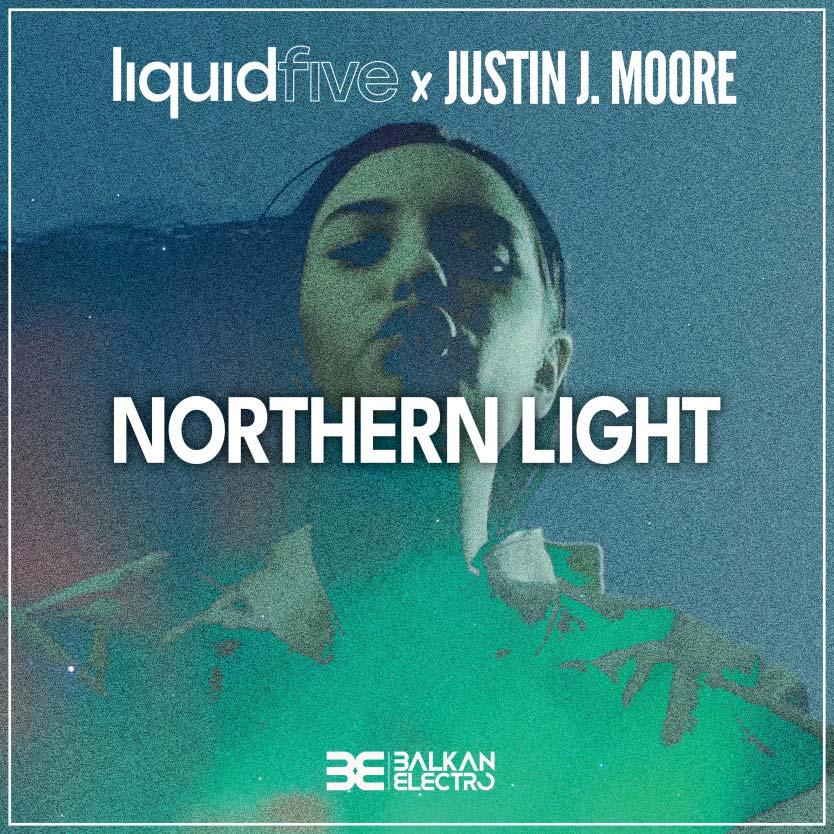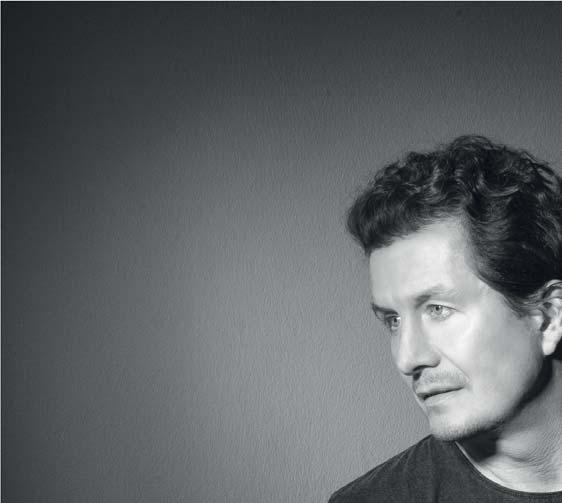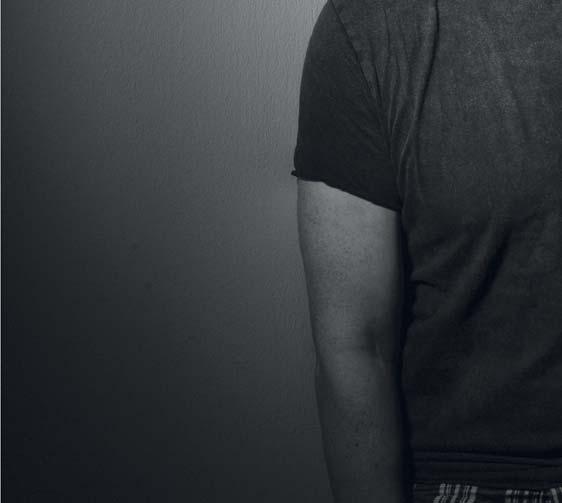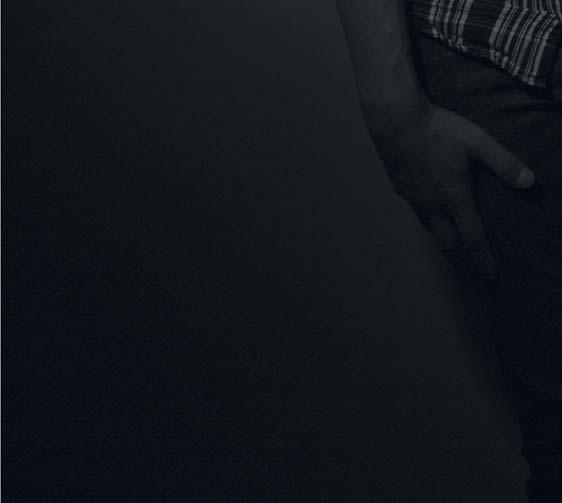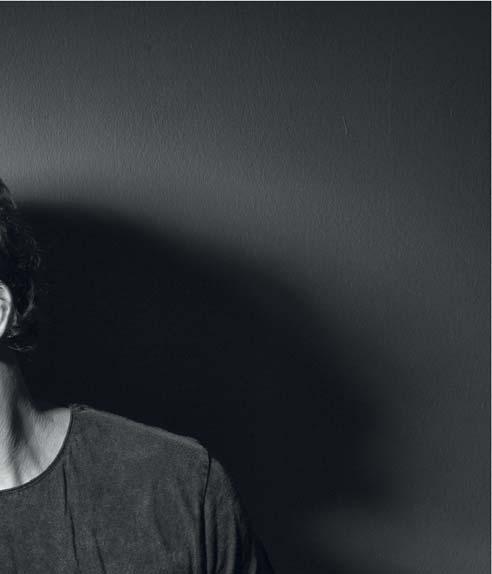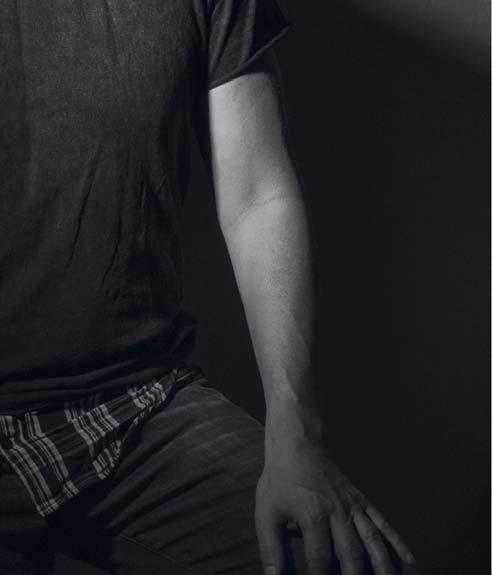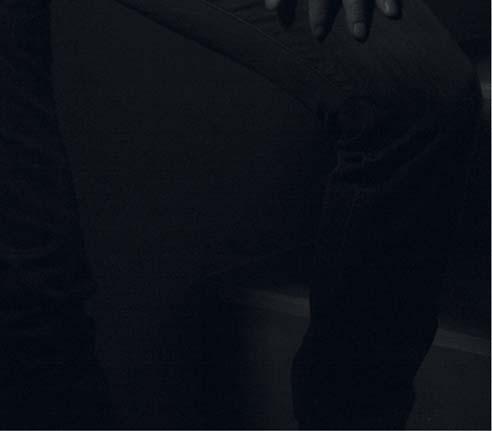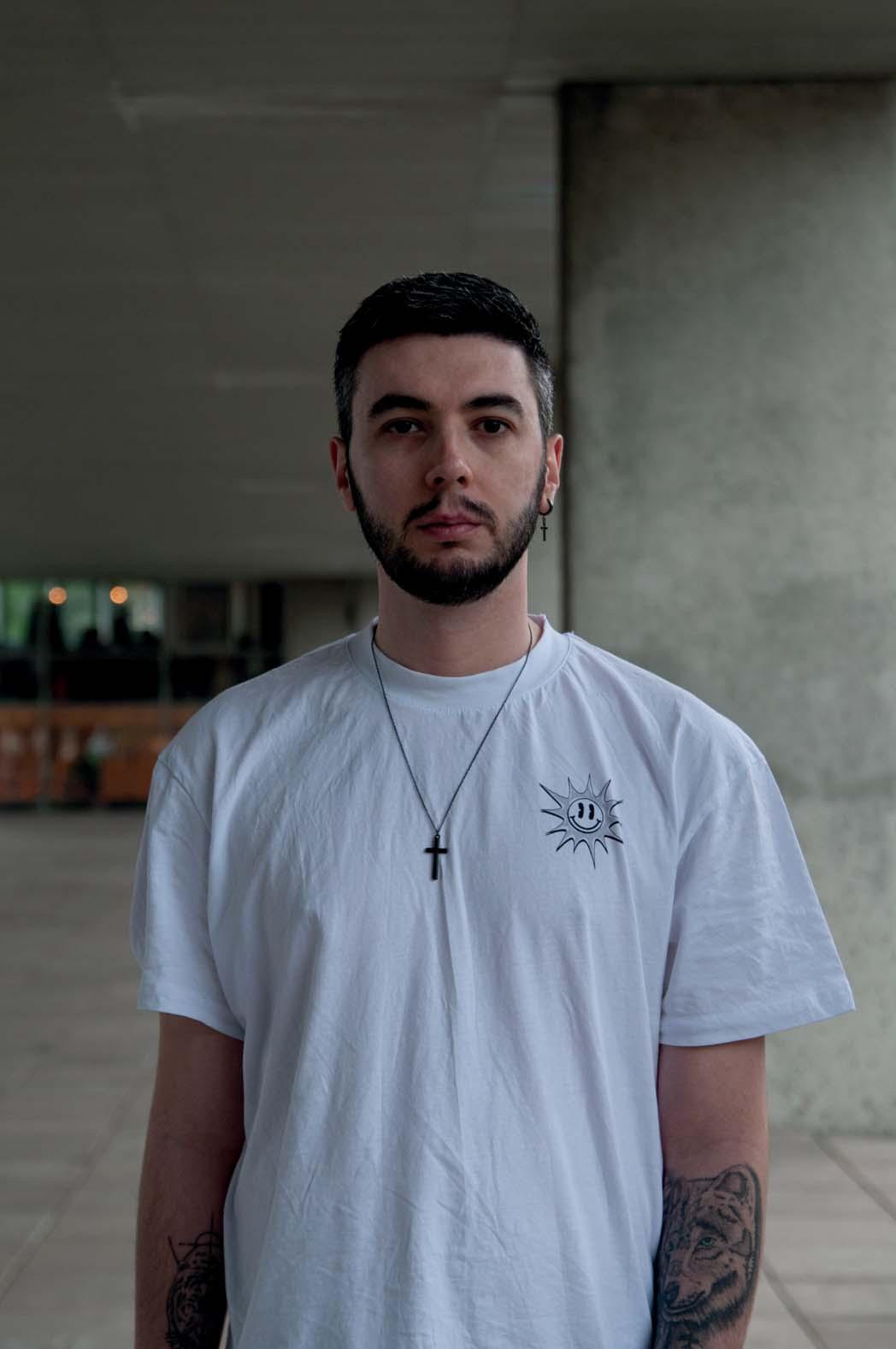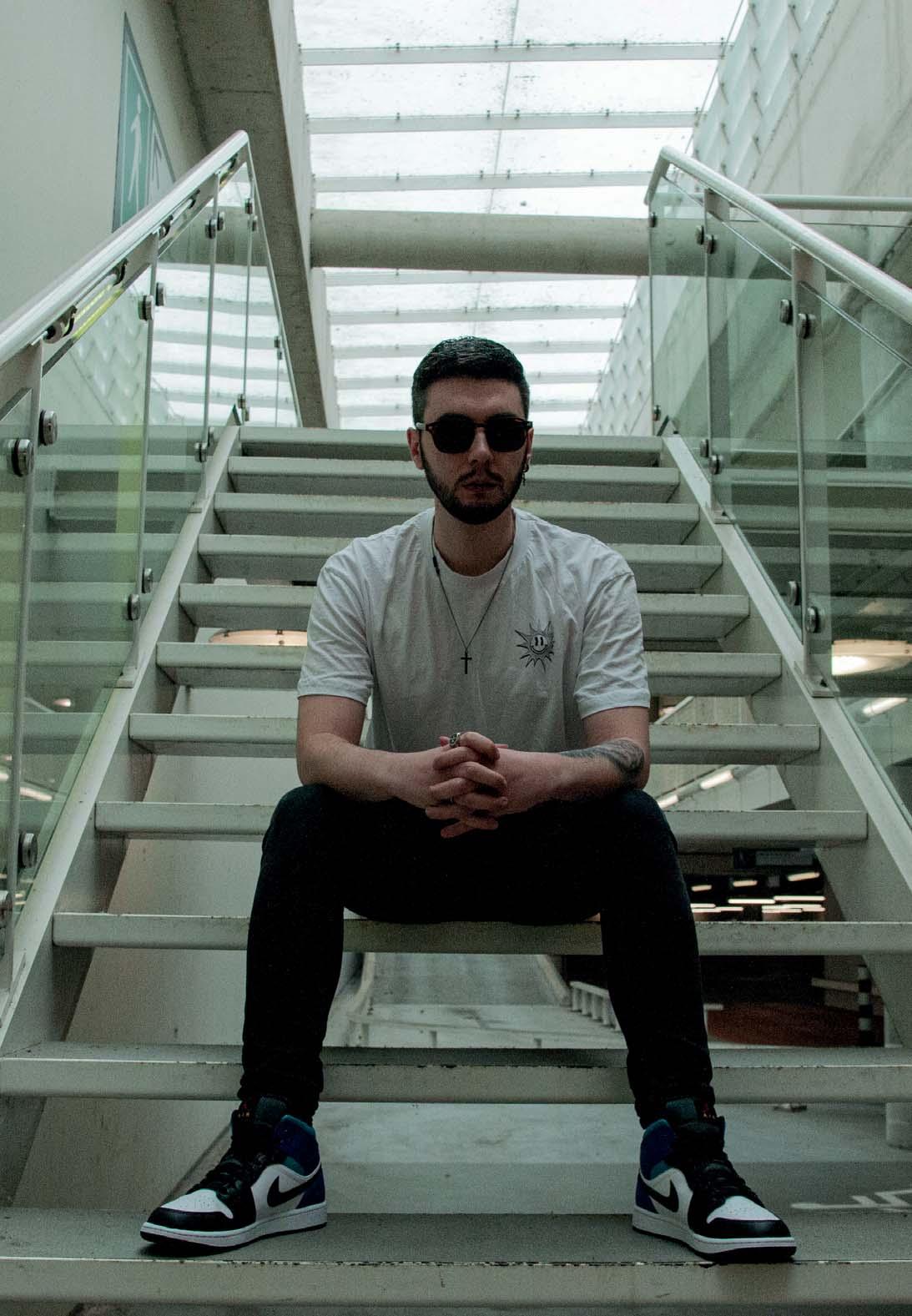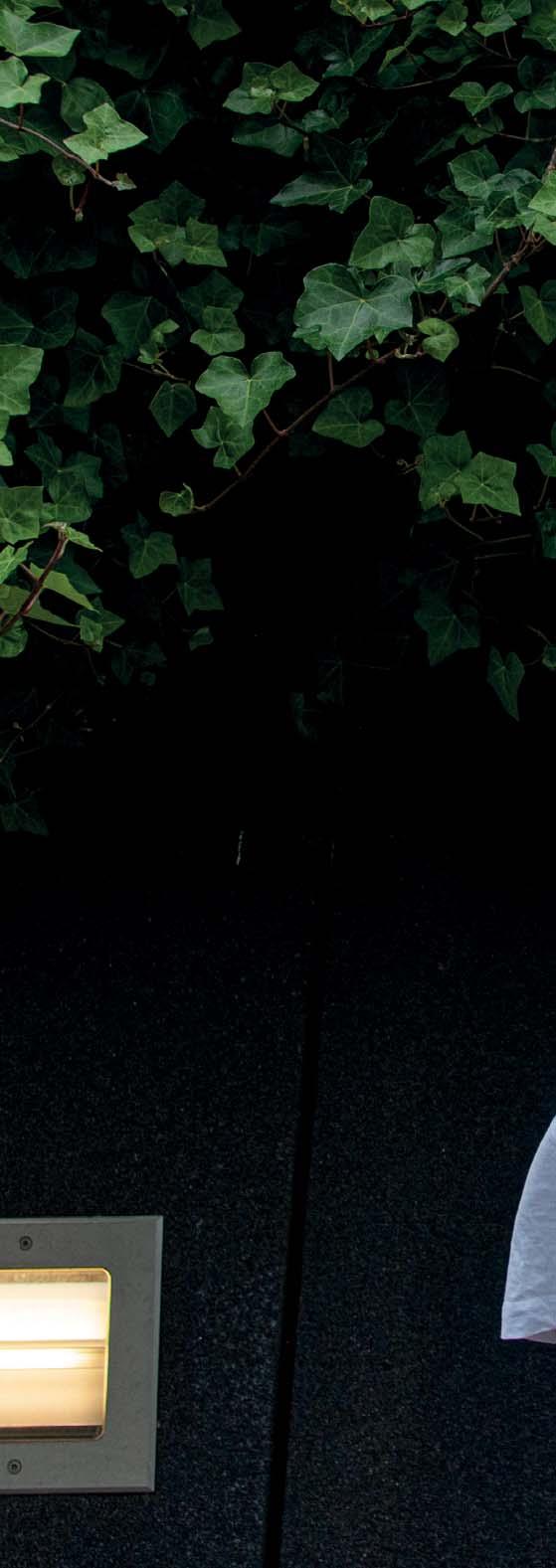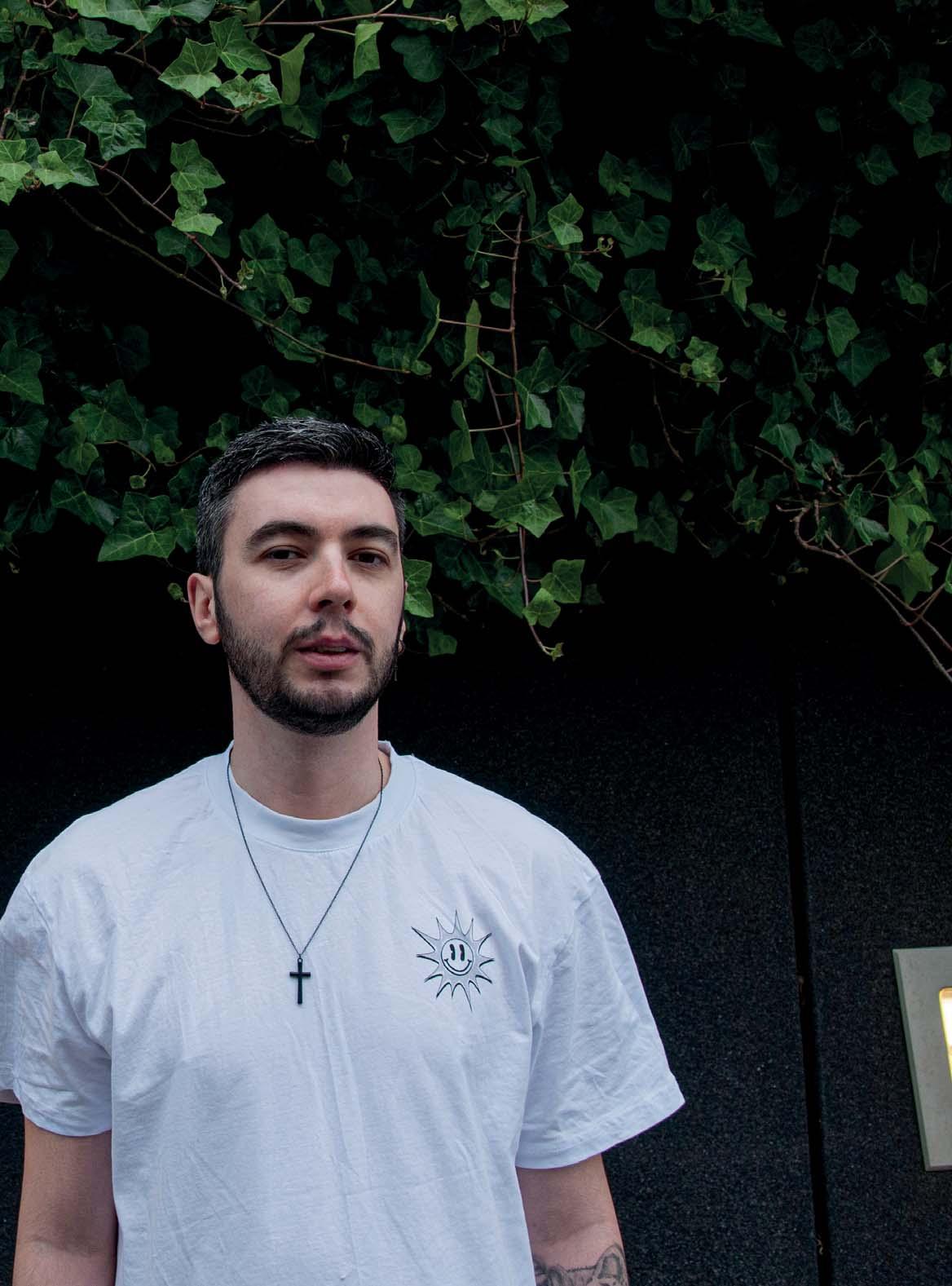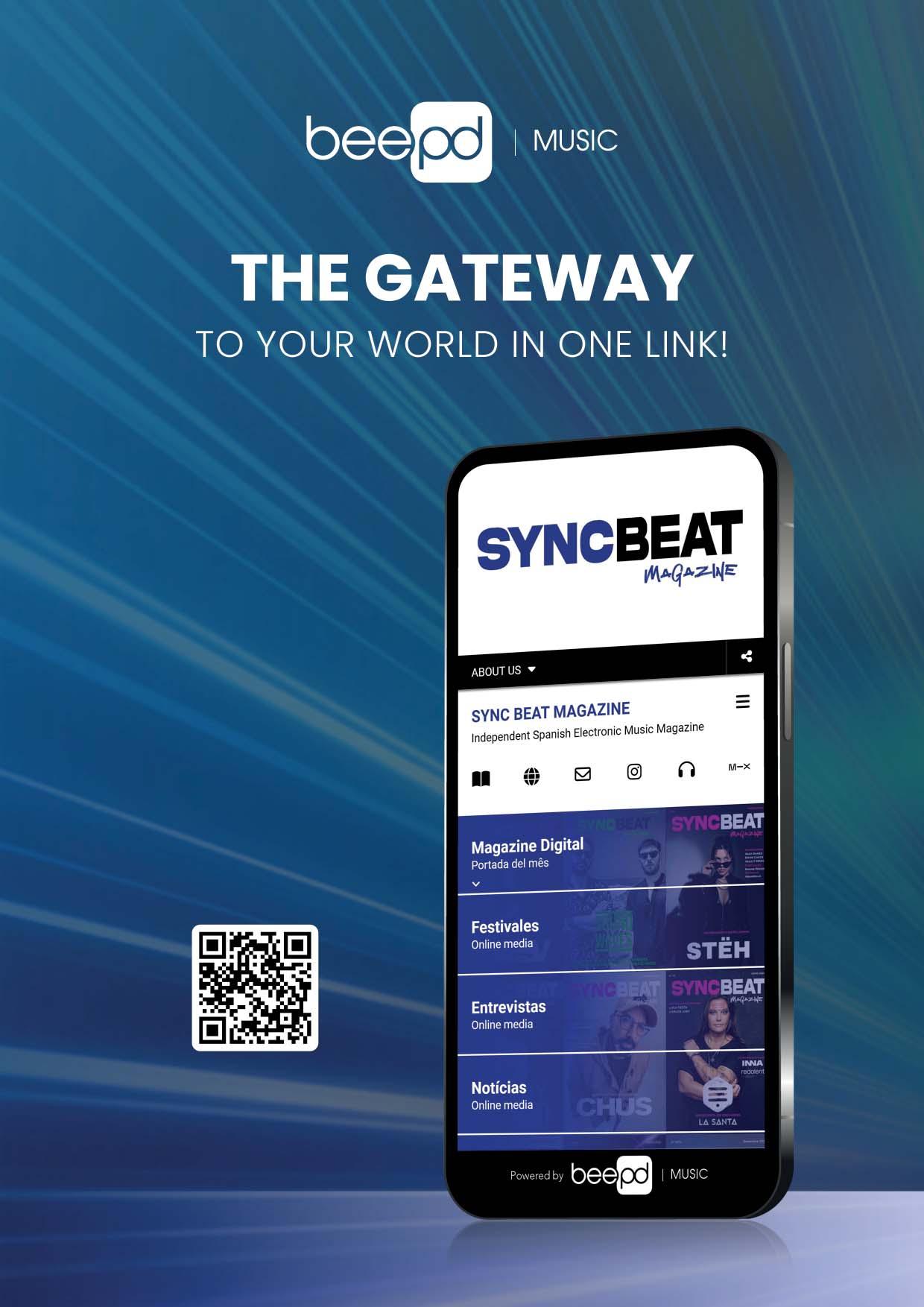
















Chilean DJ and Producer, Re Parra: “Everything
that inspires me is based on my experience with the world”
By Gabueliella

At 17, Re Parra began DJing… The day we did the interview, Facebook reminded her that she has been in Chile’s electronic scene for 12 years, delivering vibrant moments through sounds and colors. Her great love is psytrance, but her passion for techno has led her to perform at many renowned parties in the country. “I have two projects: Re Parra is for techno, and Renacer is for psytrance,” she explains. It all started when she met DJ Pishi from Venezuela, one of the first women Renata Parra heard playing, and from that moment, she was inspired to start a career she doesn’t plan to end.
From that moment, bright colors became part of her stage presence. She has performed on renowned stages, such as Montemapu, where she has been invited as a Stage Manager and curates the lineup. Inspired by Madonna, one of the artists who drew her to electronic music, and Britney Spears, pop led her to one of her milestones when she played the track “Acid Britney”a remix of “Toxic” at the Love Parade 2022.
I had to interview her for Sync Beat because she’s one of those artists that, when I hear her play, I approach her and tell her how much I enjoyed dancing to her music. Here’s Re Parra, in her own words:


Tell me about your beginnings…
- Everything was more masculine compared to now. After seeing DJ Pishi perform, I fell in love with it and thought, “I want to try this.” One day, I met another artist, Dani Mach, who was very friendly and willing to help. He told me, “Come to my studio one day and see if you can spin the vinyl.” I understood the sensitivity much better after that. I later got to know more technological equipment and began evolving with the machines.
At first, my main project was Drum and Bass. The producers of these events always wanted more women playing, so I had a lot of support from my colleagues at the time to start DJing.
Re Parra did things the other way around first analog, then machines. She started DJing when she was underage, which gave her a bit of adrenaline when she was invited to play at underground spaces. Her current work started as a game that now has all her attention and passion.
What was the national scene like 12 years ago?
- The spaces were very limited for the first styles I played—psytrance and drum and bass. So, I thought, “How can I play more?” That’s when I realized techno was making its way, and that’s how Re Parra was born. Techno is political, cachai? It’s like going against everything.
What’s your reflection on the scene we have today?
- Here, there are still genres that exclude women. Sometimes, there’s only one woman on the lineup. Honestly, I’ve seen the electronic scene grow, die, divide, and unite. I’ve seen it in so many forms, but as it stands today, I think it’s not much different from 12 years ago.
I do feel there’s been some change, but it’s not a big enough shift for me to say, “Now there are many more women.” Yes, there are more of us, and I have many more female colleagues now, but we’re still few.
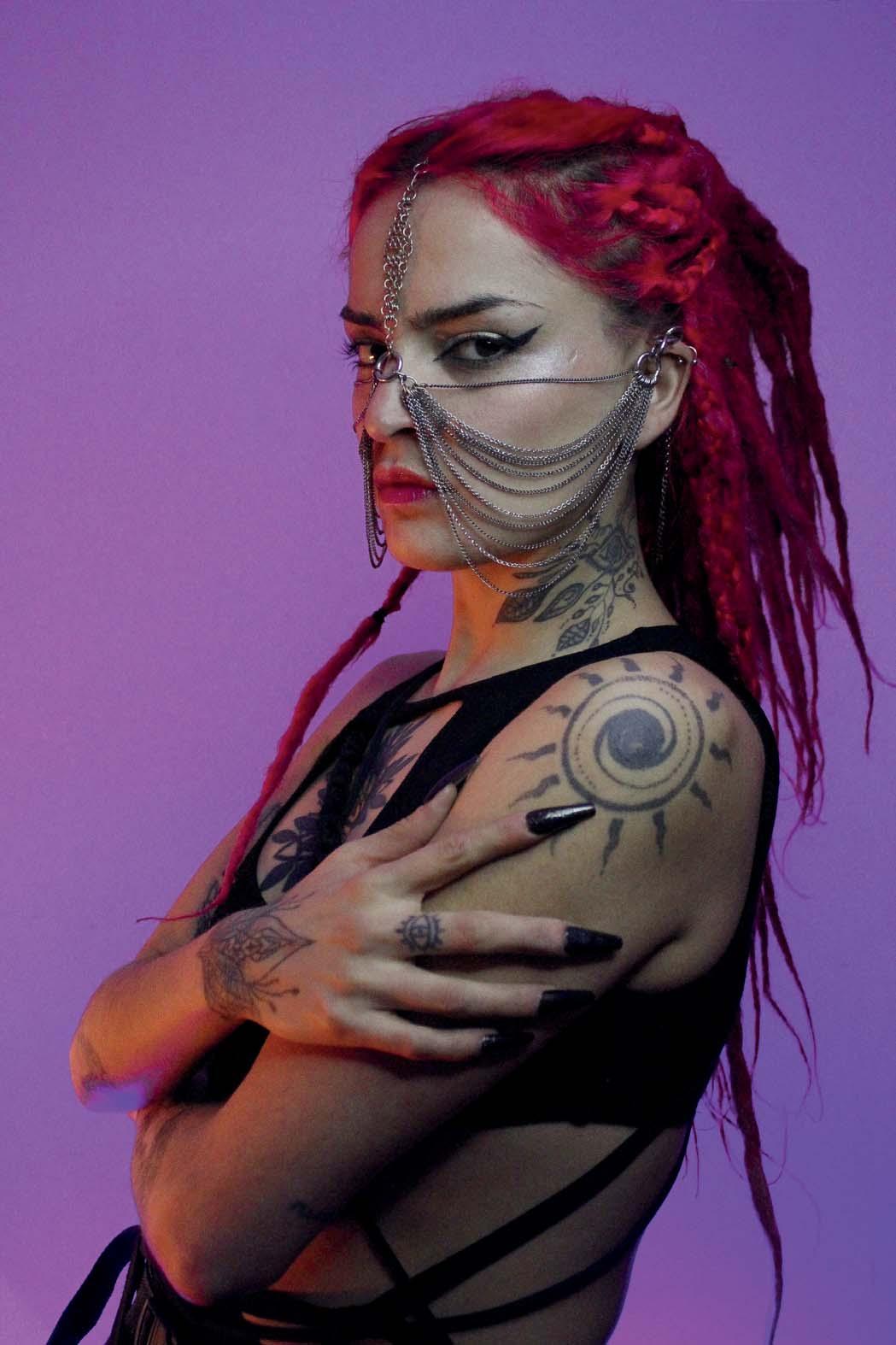

Today, more women dare to try to take up space. In the end, it’s about claiming what belongs to us. Chile is still part of the third world; we’re still chasing our tails, and that unfortunately depends a lot on the old school, which still has a monopoly. I think that, in terms of production, there could be a more equitable rise between men and women, and also in terms of causes.
The Experience with the World
- With a political focus when creating art, Re Parra (or Renacer, at times) began producing during the pandemic and the long quarantines we had in Chile. The first EP she participated in, along with other Chilean artists, dedicated its first track to this global moment that changed many lives. Often using her voice as an instrument, she also brings her hybrid sets to the dance floors.
I wanted to make a track about the pandemic, which is called “Proceso Interrumpido” (“Interrupted Process”), which is basically how I felt… like this process I was going through was broken because
gigs dropped, but the cost of living remained the same or even more expensive. So, my life was interrupted, but at the same time, it wasn’t because it gave me space for an internal process—to become a producer, to be more creative. It was like living a residency during the pandemic.
It’s always something that happens to me at the moment… I produced “Madre Electra,” a song dedicated to the anti-transphobes. I also produced “I Need to Feel Love,” a song I dedicated to an ex-partner who committed suicide. I was deeply hurt by his loss. In fact, he was still my partner at the time, but I now call him my ex because much time has passed.
I made this song for all the people left with soul wounds from the decisions of those who have left this planet. So, everything that inspires me is based on my experience with the world.


In December, I plan to release an EP that I’ve been working on all year. It will have six songs. I’m collaborating with well-known artists from the Chilean scene because my idea is to empower ourselves as Chileans both women (since there are very few female producers) and men who truly have feminine sensitivity.
Part of the party scene in Chile has been overshadowed by narco culture… criminal acts in spaces where electronic music should only bring happiness have taken over part of the media narrative, demonizing an environment meant to be a space of relaxation for many lovers of dance.
In reality, I am very passionate. I love music, and I love being able to share it. Mixing and choosing songs that are positive for the soul… Sometimes people prefer to party hard, and that’s why I feel like in Chile, musicians aren’t valued much, even when they release a track. There’s a lack of real support for Chilean art, more than just support for partying and escaping the week. If you liked the DJ, give them a like and share their music, not just the party. That’s my vision. It’s not that I want everyone to be like that.
Ideally, it would be beautiful because I don’t live off applause; I live off the gratitude of the dancers.








by @perlanegradj
You’re originally from Norway; where do you live today?
- On paper, I’m based in Copenhagen, Denmark. But in reality, you can count on two hands the days I’m actually home. It might sound like I’m constantly touring, but that’s only half the truth. I often live for months in one part of the world and tour from that base before moving on. I’ve been living a very nomadic lifestyle for many years now.
Your music is usually described as Afro House, and you were one of the first European artists to embrace and popularize this
genre. What inspired you so much about African culture?
- Yeah, it might seem strange that I’ve been such an ambassador for that sound, especially considering I’m not African. For me, it’s just a “short pitch”—the quickest and easiest way to describe my style. I’ve always been fascinated by all kinds of rhythms and never really understood why most electronic music sticks to the same beat, when there are so many more interesting possibilities. Technically, I play house music in the sense that it has a steady 4/4 kick, but I rarely use a snare or clap on 2 and 4, or an


“off” hi-hat in between, which is the standard. The so-called “Afro House” genre is where I fit best in that sense. My inspiration comes from everywhere—Africa, Asia (especially India), and Latin countries.
Are you happy with Afro House gaining such widespread popularity now?
- It’s actually a bittersweet feeling, to be completely honest. I spent a lot of time touring and promoting this sound long before it was recognized as a genre on Beatport or became widely known. It was a fun but challenging journey. Of course, it’s gratifying to see it gaining a bigger audience and to see talented DJs and producers from Africa getting the recognition they deserve worldwide.
But on the flip side, I feel it’s starting to get watered down. The influx of generic remakes of ‘90s hits with 2-3 piano chords doesn’t inspire me much. I guess this happens with any new genre it feels fresh and exciting until it becomes formulaic. Maybe it’s time for me to explore new directions.
Can you share some of your major musical influences and how they’ve shaped your approach to production and DJing?
- My biggest musical inspiration when I was young was Prince. I’m not sure how that directly influences my DJing, but his live performances might have had an impact. He was a master at creating alternative versions of his songs live, building tension by lowering intensity before bringing it back up for a full release. He also had a way of capturing the audience’s attention completely.
Your music is known for captivating both festival crowds and intimate club settings. How do you adapt your performances to suit different audiences and environments?
- I usually plan halfway. I have some new tracks I want to play and a rough idea of where I want to take the crowd, but I’m not rigid with the plan. I like to arrive at least an hour before I play to feel the vibe and observe the crowd. In a club, I start by giving them more of what they seem to respond well


to, and once I’ve earned their trust, I take them into more unfamiliar territory. People don’t always enjoy being fed “what they want.” A truly great night often leaves you with a sense of a new experience. I usually avoid playing tracks people have heard before. At larger festivals, the approach is different—it’s more of an act, so I might start with something unexpected and tell my own story, independent of the previous performance.
Do you have any tips for up-andcoming DJs?
- Loud isn’t always better. Nothing sounds good in the red, and the sound engineer will hate you for it. Don’t worry; it will still sound loud, as the venue usually has a limiter that pumps it up to max. It’s easy to pile on, but if you master the art of creating tension by subtracting, you’ll do great.
Also, keep a “giving mindset.” The crowd isn’t there to praise you; you’re being paid to serve them. This can be hard to understand in a world where narcissism has become the norm through social media.
What does a typical day in the studio look like for you? Do you have any rituals or routines that inspire your creativity?
- Since I travel a lot, I don’t have many routines, so I have to be flexible. When making music with others, I like to spend a lot of time just listening to music—not only house music, but all kinds. It’s not just for inspiration, but also to create a common language, as musical terms can be very subjective.
This might seem counterintuitive time-wise, but it saves a lot of time later in the process. Making music today is all about making choices, and if you already know where you want to go, you’ll get there much faster.
How has the creative process evolved for you since transitioning from a duo to a solo artist, and how does it influence your music today?
- I see music as a language, which is inherently social, so I prefer to create music with others. That way, I learn a lot in every session, as


everyone has their own approach. Sometimes I feel I have something I want to express and it might be quicker to do it myself, but I try to avoid spending too much time in solitude in front of a screen—it’s not good for me.
Among your releases like “Koma Kobache,” “Osuga,” “Manlaton,” “Small Fries,” and “Oloro Nyager,” do you have a favorite track or project that holds a special place in your heart? What makes it memorable for you?
When I’m in the process, the track feels like it’s mine. But once it’s finished, it takes on a life of its own, and I don’t feel as attached to it. Sometimes, a track might come out a year later, and by then, I’ve moved on so much that it doesn’t even feel like I made it. It can be hard to generate enthusiasm for promoting it because of that. But the thrill of playing a new track for the first time and seeing people’s reactions never gets old.
“Les Djinns” was a breakout hit for you. Looking back, how did that success shape your career, and what lessons did you learn from it?
“Les Djinns” really put us on the map. It was a crossover hit, commercially huge, and respected in the underground. We, as a duo back then, got big, well-paid gigs, including playing for around a million people on New Year’s Eve in Rio de Janeiro. But many of the gigs had commercial audiences who expected pop music, as that’s how they heard “Les Djinns” on the radio. We had to decide whether to become a more pop-oriented act or stay in the underground.
Looking back, I’m glad I chose the latter. Even though it was hard to turn down those big gigs, I don’t think my career would have lasted if I hadn’t stayed true to what I believed in.
How have you seen the electronic music scene evolve over the years, and what do you think are the biggest challenges and opportunities for artists today?


- I’m not nostalgic, so I don’t buy into the “everything was better before” mindset. I think there’s a lot of amazing and creative music coming out today. One big difference is that it’s much easier to make music now, so you need less skill or financial investment to do it. I love this democratization of music— it means a kid with just a laptop can create something amazing.
The downside is that every great idea gets copied quickly and watered down. Another big change is the focus on social media. Marketing has always been part of the music industry, but now it seems you have to brand yourself more than ever, which can be exhausting. I try to minimize my time on it, but ignoring it would be career suicide—I learned that the hard way by staying off it for a while!
What can fans expect from Djuma Soundsystem in the near future? Any upcoming projects, tours, or new sounds on the horizon?
- I tour more or less constantly and try to cover most of the world each year. I minimize flying by staying for extended periods in each region. This summer will mainly be the USA and Europe, in the fall I’ll head to the Middle East, India, and Asia, and I’ll end the year in South America, with North America following early next year. I focus on supporting my label, Iziki, with new releases. I recently released “Esigia” with King Ayisoba from Ghana, an amazing vocalist and kologo player. I also host the Iziki radio show every second Thursday on Ibiza Live Radio.
If you want to stay updated on what’s happening in my world or hear the latest Afro House, tune in live or catch it later on my SoundCloud. I’m also working on expanding the Iziki community and hosting more Iziki parties in new places. We’ve already thrown them in around 30 locations globally, and hopefully, this is just the beginning.
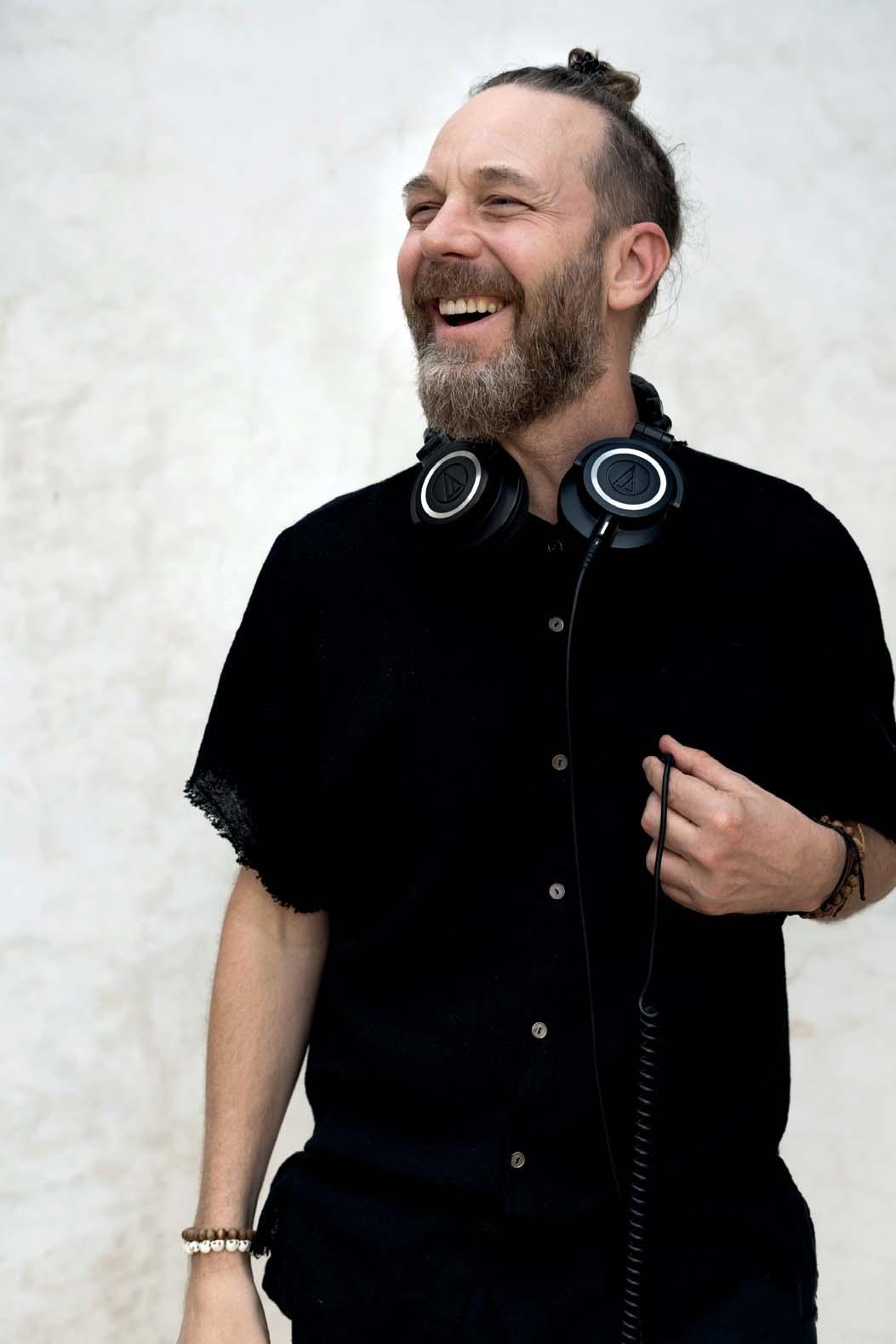



Track ID : Alone
Artist: Ertan Koculu
Catalog No : Row 042
Genre : Melodic House and Techno
Label : Row Record ( Canada )
Artist Instagram : ertankoculu.ofc
We begin to analyze the first track in these September 2024 reviews fully dedicated to the Canadian-based label, Row Records. This track is one of the most recent ones produced by the Turkish artist, Ertan Koculu, full of Melodic House and Techno with female vocals that sigh about loneliness. An intense and wellpaced track that is specifically designed to be a big hit at festivals and clubs.


Track ID : Joera
Artist: Hakan Akkus
Catalog No : Row101
Genre : Afro House
Label : Row Record ( Canada )
Artist Instagram : @hakanakkus.official
This second review selected from the recent new upcoming releases Row Records label catalogue belongs to the Turkish artist Hakan Akkus and is a track full of ethnic melodies very characteristic of the Afro sound. A true reference track and very important one to be traced in the artists´sets who normally play this so popular genre, lately in these times in electronic music.


Track ID : Day & Night
Catalog No: Row 069
Genre : Indie Dance
Label : Row Records (Canada)
Artist Instagram : @kingakasampleking
The last of these September 2024 reviews dedicated to the Canadianbased label, Row Records, is about a solo track produced by the wellknown Spanish artist, King a.k.a Sampleking, who delves into the Indie Dance landmarks. A very powerful and energetic track designed for the dance floor in which you can find Arabic elements
that merge with analog sounds very characteristic of this genre. It is undoubtedly another good work by this Spanish artist who mainly navigates, both in his productions and in his sets, between Afro, Organic, Melodic and Indie Dance.


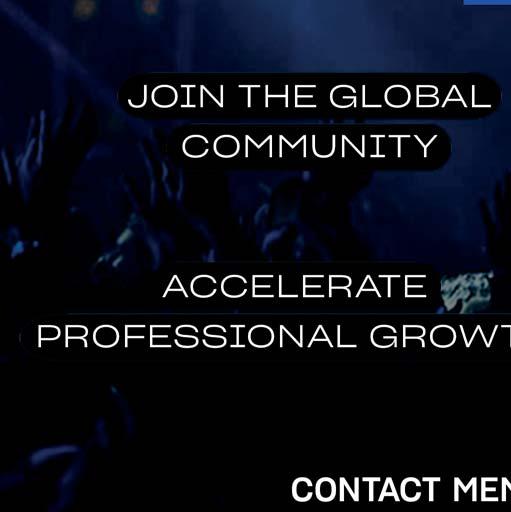






First of all, we must remind our readers that Agassi was with us a few months ago at Syncbeat Magazine with an interview close to his professional figure. On this occasion we focus on the recent edition of “Trip Festival 2024” which
has taken a great qualitative and quantitative leap forward…Thanks again Agassi for being with us!
By King a.k.a Sampleking
Before starting the interview with this great artist and personal friend, I have to inform the entire audience that, personally and professionally, I feel very connected to this place that we will talk about, “Embargo Villa”, since I first arrived there in the late 2000s, where I have performed and I perform regularly and I have
personally sightseeing how it has evolved from its beginnings to the present times, that’s why I feel especially happy to see how Agassi has worked hard to reach this moment…



Here is the first question: Although we asked you a few months ago in your first appearance in our magazine, we would like you to remind us how long you have been in electronic music as a professional and what you currently represent in the Eastern European electronic scene…
- I have been working in the electronic music industry for more than 25 years. I am currently a DJ, artist and producer under the “Agassi” pseudonym and, in several projects, as an organizer/promoter in the Russian Federation. One of them is the famous “Trip Festival”. I am also the “ideologist” of one of the big clubs in the country, “Embargo”, which is celebrating 20 years on the scene…
What electronic music styles have you been experimenting with during all the years you have been a professional? Have you changed your musical register from your beginnings to the present?
- I have loved and continue loving House music. Despite the different Deep or Tech trends, I am now experimenting with Afro and Organic. I have always been a great lover of sound experimentation and I have flirted with multiple styles throughout all these years. During all my years as a professional I have always been in constant progression, of course, but as I have told you, the predominant elements in my music and my sets are Afro-House and Organic.
In the previous interview we talked about how you are the “leader” of a huge and powerful ship that has been sailing steadily like “Embargo Villa” (Rostov Na Donu) for quite some time. If you look back, what can you tell us about the great evolution that the club has had until today?
- Yes, that’s right, I am fully involved in one of the biggest clubs in the country “Embargo Villa”. During the 20 years of this club lives and, in general, of all the clubs in the country, many things have changed. Generations and trends have






changed. We are going through this evolution that the entire Clubbing Culture is now experiencing and we are also growing our events that have already become huge festivals. We have multiple dance floors in our multi-leisure space “Embargo” although in the past we startedlike everyone else - with only one small dance floor.
“Embargo Villa” is not only an electronic music club or a summer club where festivals are held, but it is also one of the best technically and technologically prepared locations in the country, but now we are going to focus on what you say is “your great pretty pearl”,“Trip Festival”. This summer, the 2024 edition was held, in which both attendance and the level of artists have improved significantly. What can you tell us about this great success?
- Yes, that’s right... my great pretty pearl! Embargo Villa is a large multispace that includes a club, hotel and a concert area so all kinds of big events can be held. There are
excellent reviews among the people who come to our space. We see some smiles and joy in people, we see how the relationship between us, promoters and organizers, is growing up. We try to surprise every year with new projects, new festivals and spaces. There is always some kind of construction going on at the location. We evolve year after year, all the time, to everyone’s satisfaction... Embargo Villa is also a “Summer Club” with a swimming pool opened all days during the summer period (except when we are doing maintenance on the facilities).
This year, the “Trip Festival” 2024 edition was held and, of course, every year the public attendance was directly and proportionally linked to the level of the artists. I can only say one thing: every year we try not only to surprise, we also put more emphasis on spectacular lighting and on improving every technical aspect. These are part of the success and popularity of the festival. We are already starting to think about a new show for 2025,
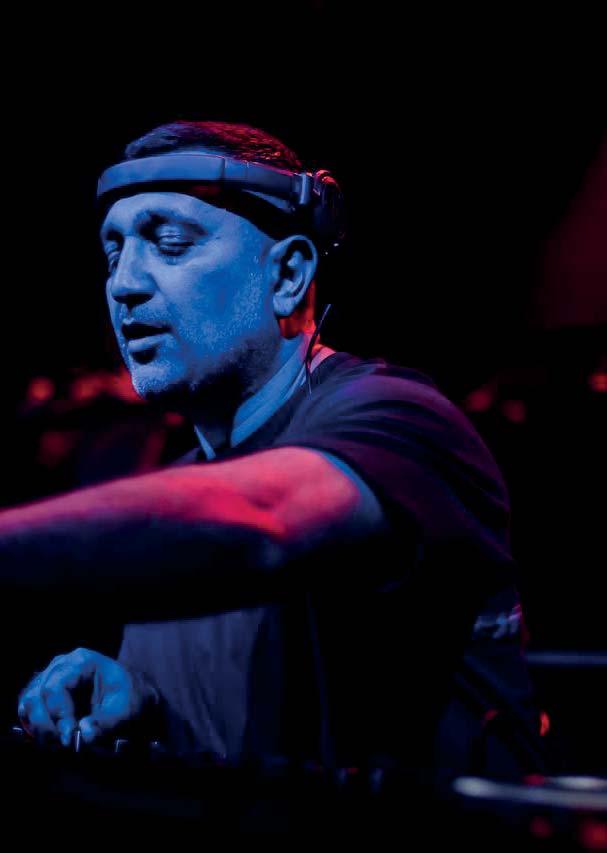




about the new locations that will be created for it and, of course, about a new big show. We must not forget, of course, the people, as they are the essential part in participating and interacting in all this.
We have personally seen that technological quality, infrastructure, personalized services and more additional aspects have been part of the improvements of this 2024 edition compared to last year. What could you highlight about all this that we are discussing?
- There has been a great improvement in this 2024 compared to the previous year. Of course, we bear this in mind and we worked on it. I also wanted to highlight the great work we have done on the main stage, in all our facilities and also we highlight our fully active pool area during the daytime parties, which is what gives our festival a unique atmosphere among similar projects carried out in our country. Our goal is to continue growing and developing all these things.
What has been the impact on the audience that has attended the festival and what are you preparing - and can you tell us in advance - about the 2025 edition?
- As I said before, next year 2025 will be the Embargo Villa 20th Anniversary, but also the “Trip Festival” will celebrate its “mini anniversary” -the fifth one-, in which there will be additional activities and it will be expanded from 3 to 5 days because the first 2 days will be an electronic music conference called “Trip Music Session”. It will be not only a festival, but also a “business meeting point” for those who have something to do with and in the scene.
“Trip Music Session” will be held from 22 to 24 July 2025. Under the TMS abbreviation, the most innovative and creative of the electronic music ecosystem and entertainment industry in Russia will be united.


“TMS” is an annual summer gathering for music business participants. Over the course of three days, there will be many business meetings, educational seminars, brand activations, broadcasts and expert panels.
Our goal will be to bring together industry leaders to discuss, create or strengthen connections, develop mutual understanding and expand opportunities.
On the other hand, it is important to add that the atmosphere and the audience in our festival will be one of the main strengths of the new edition we are preparing to. We invite absolutely everyone to join us on our journey towards “Trip Festival 2025”, which will take place from July 24th to 27th, which will open with a very special Opening Party…There will be a lot of surprises! (Laughs)
Finally, we would like to ask you... what have you prepared at Embargo Villa for this new season that starts in just a month,
knowing that this summer has been spectacular?
- It is still very early because we will see this as time is going by. We will start working on it right now. We will keep you informed! Sure we will!…
Agassi... thank you very much again for your kindness. For finishing, we would like you to
add something that you have not told our audience during this interview and that you would like to emphasize...
- I would like to say to finish: Thank you very much for the interview in Syncbeat Magazine and all the readers for wanting to know more about me and the festival. On the other hand, I think I have covered all the most important things that I wanted to mention here. See you at the “Trip Music Session” and the “Trip Festival” in July 2025!


Programación Web
Confección y publicación de paginas web. HTML5 CSS3 BOOTSTRAP






French producer Laurent Wolf’s 2003 Ritmo Dynamic classic, ‘Calinda’, gets a giant remake for 2024, as he joins forces with fresh talent Ahoona to deliver a breathtaking new Afro House version. Transporting this much-loved song into a whole new dimension, the trio inject powerful percussive Afro-tech beats, captivating synthscapes, and beautiful melancholy-drenched piano melodies to create the perfect emotive storm for the dance floors this summer!
“For me this collaboration with Ahoona has resulted in the best remake of ‘Calinda’ since the original, it has a great Afro deep atmosphere. We were on the same frequencies producing this new version and the magic happened! Since we are in tune in our musical production’s perspectives, we’ll definitely be collaborating more in the future” - Laurent Wolf.
Parisian native, now Californian resident, Laurent Wolf is one of France’s most booked DJ’s in the world alongside the likes of Bob Sinclar and David Guetta. Boasting
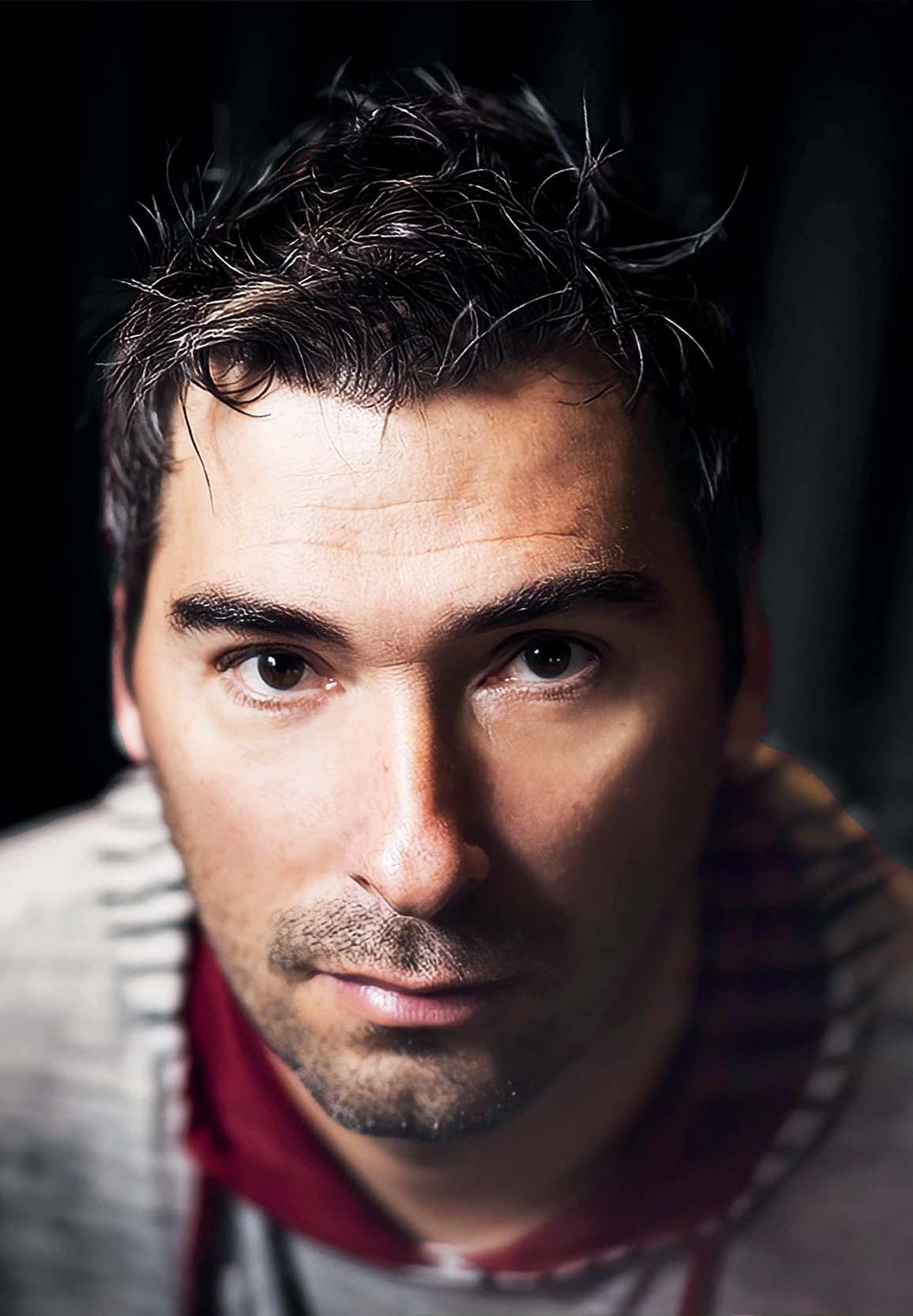

a career for several decades, he was the original resident at Paris’ legendary club, The Queen, for 10 years back in the early 90’s, before becoming an international DJ success and consistently touring the globe. As a producer, Laurent is well known for his global hits such as ‘Saxo’, ‘Calinda’, ‘Sunshine Paradise’, ‘Another Brick’, ‘Happy TV’ and ‘No Stress’, and is inspired by many African, Latin, Arab, European and American grooves. He’s released 5 albums to date, including the worldwide smash albums, ‘Wash My World’ and ‘Harmony’.
Up and coming French Afro House DJ / production duo, Ahoona, have been friends for many years and have a great affinity when it comes to producing powerful and melodic music together. Since their debut release, ‘Revolt’ (KIDS Records Foundation) last year, the pair have gone on to release on MoBlack Records, LW Recordings, Ancestral Nights and more, quickly gaining support from DJ’s such as Nitefreak, Kryder, Cedric Gervais, MoBlack, to name a few.







We chatted with Integral Bread, label manager of the fantastic and prestigious Spanish digital label Univack, where we also delved into the past, present and future of this Spanish artist.
Hello, Integral Bread! It’s a pleasure to have you on Sync Beat Magazine. How did you start your love affair with electronic music and who were your first influences within it?
- My interest in music began when I was very young, when I was 8 years old when I was given my first keyboard, a Casio MT210, with which I spent hours experimenting, creating songs, trying out rhythms, chords... In addition, my grandfather
was a flamenco guitarist, so I also had the opportunity to experiment with the guitar, cajón, flute, and other instruments, almost always in a self-taught way. I liked to invent my own melodies, but there came a point where I felt limited by not having training in music theory. Almost in the mid-90s I began to be interested in songs by electronic bands, such as Orbital, Prodigy, The Chemical Brothers, Underworld, Massive Attack...
I was attracted to those rhythms and sounds that I did not identify with any traditional instrument, and that generated emotions in me that until then I had not felt with other styles that I consumed more, such as Pop


or Rock. My passion for computers gave me the opportunity to discover Trackers, with which I managed to understand the methodology with which this type of music was created. In 1996, accompanied by my uncle, I went to my first electronic music party, where I could feel all the power of that music on a great sound system, watching a DJ mix and making a dance floor full of an audience 100% devoted to the music vibrate. That atmosphere captivated me, and it was then that I had it clear. I wanted to be that creative person behind the songs that the DJ played. I began to delve deeper into that aspect, buying my first synthesizers, drum machines, samplers, etc., with which I produced my works, and also performed my live performances. Almost 30 years later, here I am, in love with this beautiful and magical passion.
First of all, we would like to know what similarities and differences you could highlight between the Spanish and international electronic music scenes and where you think electronic music is going…
I think that electronic music is now totally widespread throughout the world, and that to a certain extent it has lost a bit of the avant-garde character that it had a couple of decades ago, when it really exploded, a time when so many new styles appeared, and where experimentation by producers and creators was constant. Obviously, electronic music continues to evolve, and to integrate itself into the rest of the more traditional musical genres, partly thanks to technological and social advances. Globalization, the Internet and social networks have made it easier for there to be less and less difference between the scenes in different countries. In almost all countries, any style of electronic music is consumed, although some are more successful than others. I also think that the consumption of certain styles depends a lot on the age range. As a general rule, the most danceable, most energetic and least complex styles are the ones that the youngest public will consume the most. In short, I think that electronic music will continue to be implemented


among all traditional or popular genres, and that at the same time it will be fed back by other genres that are of more interest to the new generations, such as all current urban music. Despite everything, the most traditional styles of electronic music will always continue to be maintained, consumed mainly by an increasingly older audience. What generates the most doubt and expectation in me about music today is imagining how far the impact of increasingly integrated Artificial Intelligence will go. I hope and wish that all future creators know how to use these new technologies and tools that are emerging to create a true revolution in music, which can allow us to enjoy totally new genres, works and experiences.
You are a “multi-functional” artist who works as a DJ, producer and label manager at Univack. Which role do you feel most comfortable with? Or, on the contrary, do you think that these three aspects have to be united with?
Fortunately, to a greater or lesser extent I am still active in these three profiles, although for a couple of years now the one I feel most comfortable with and the one that takes up practically all my time is that of manager of my label Univack. The growth and success of Univack is very motivating and brings me a lot of satisfaction.
I have always thought that the DJ profile does not have to be linked to that of producer, although as the music scene has evolved, both profiles have been forced to be closely linked. From the point of view of a label manager and A&R, it will always be positive to have experience as a DJ and producer, which will give you the necessary knowledge to know what the public will like, what has quality both creatively and in terms of sound, and in general what will contribute something positive and novel to the industry and the scene.


What does Univack bring to the electronic scene? Who are the most relevant artists that are taking part of the Univack “family”?
I like to think that Univack brings something really positive and a little different to the music scene within the genres we work with (club and dance music, with a marked melodic and progressive character), encompassing an artistic identity that transcends the musical. Our philosophy is to provide musical works that can be enjoyed dancing with the body and the mind, and that generate beautiful, energetic and positive emotions. At the same time, we want Univack to be a home for a multitude of artists, who feel supported and loved, and who receive the best possible treatment for their works.
As a producer, I know the time, effort and passion that must be invested when creating any work, and that is why I always try to give my best so that these works have the best results, and can be enjoyed by the greatest number of people possible.
Basically, I treat each Univack release with all my love, dedication and enthusiasm, as if they had been created by myself, and that is why I also try to make the artists feel involved in most of the decisions that each release entails.
As for artists, I always try to have a balance in our family, between established producers and others not so well known. It is an honor to have in our catalog the top producers of the genres we work with, but really what excites me the most is discovering and giving visibility to new talents, and that Univack serves as a great platform to make their music known.
For me, the most important thing, apart from their quality or whether they are known or not, is that the artists feel excited and motivated by the releases we create. And the truly rewarding thing about my job as Univack manager is the beautiful relationships, often friendships, that are generated throughout this process.





Let’s talk about your music. How would you define it? Do you like to be pigeonholed into a certain style or not? What is your inspiration when it comes to creating your own tracks?
From a producer’s point of view, I think defining your own style is often very complex. I started composing Electro and Breakbeat, then I started experimenting with House and Techno. I’ve always tried to make my music very danceable, but also with a lot of melodic and harmonic content. For years my sound could be classified as Progressive House and Progressive Techno, although I think that in many cases it is difficult to even put my works in those genres.
I have never liked to pigeonhole myself, I have always tried to create music with a timeless character, and that can be enjoyed by lovers of different genres, and I think that this versatility is the basis of my style both when producing and when performing my sets.
As for my performances, I have never really felt like a DJ as such,
since from the beginning, in my performances I have been faithful to the LIVE format, and I have always shown only tracks created by me.
It is something that I have always given a lot of importance to, since I believe that it is what really makes me identify and show myself to the public as an artist and creator.
We also know on first-hand that apart from your artistic side, you have recently developed educational cultural days on electronic music together with government institutions. Tell us how this extraordinary initiative came about…
The profile of promoter and event organizer is perhaps the one I have developed the least in my experience with music, although in recent years I have participated in the production of events and parties, especially under the Univack brand, and always surrounded by more colleagues and collaborators.
I am currently participating as an organizer of ‘Electronic Living Center’, developed in collaboration between the Badajoz Provincial

Council, Musicians in Movement, and Univack Records. This is a program of cultural events around electronic and avant-garde music, which have been held in Badajoz since last May 2024 and will end at the beginning of 2025. They are monthly events, with training activities, children’s workshops, exhibitions, performances and DJ sets. Each training day will focus on a specific topic, such as: DJing, Production, VJ / Video Mapping, Sound Synthesis, Scratching / Turntablism, and Music Distribution and Promotion... all of them taught by professionals from each sector.
I have always believed that electronic music transcends the idle nature in which it has normally been pigeonholed, and this project makes visible the cultural, avantgarde, and professional nature of it, in addition to serving as a starting point for the development of new creators, artists and other professional profiles.
Let’s talk about Integral Bread outside of the professional sphere. What do you like to do when you’re not in the studio, at Univack or in the booth?
Although it’s difficult to disconnect when you’re working on something you’re so passionate about, I think it’s something necessary and very important. Currently I try to lead a quiet life, mainly with my partner, and also with my family and friends, taking advantage whenever possible to enjoy travel, nature and new activities and experiences that make me feel alive and active. Personally I try to take care of my physical and mental health. I spend time every day stretching and going to the gym. I also spend time learning languages and subjects related to physics, astrophysics and philosophy.
Finally, we would like to thank you for your time and congratulate you on the work you do day after day both at Univack and as an artist. On a professional level, what can you tell us in terms of planning for the near future?
On a professional level, my priority in the short and long term will continue to be to work as Manager of Univack Records, to continue growing as a label and as a brand, as well as to make it compatible with my artistic projects as Integral Bread, both as a producer and as a Live performer.
Thanks to Juanjo (King a.k.a Sampleking) and all the Syncbeat Magazine team for the opportunity to present my artistic and professional side, and congratulations for the great work you do.
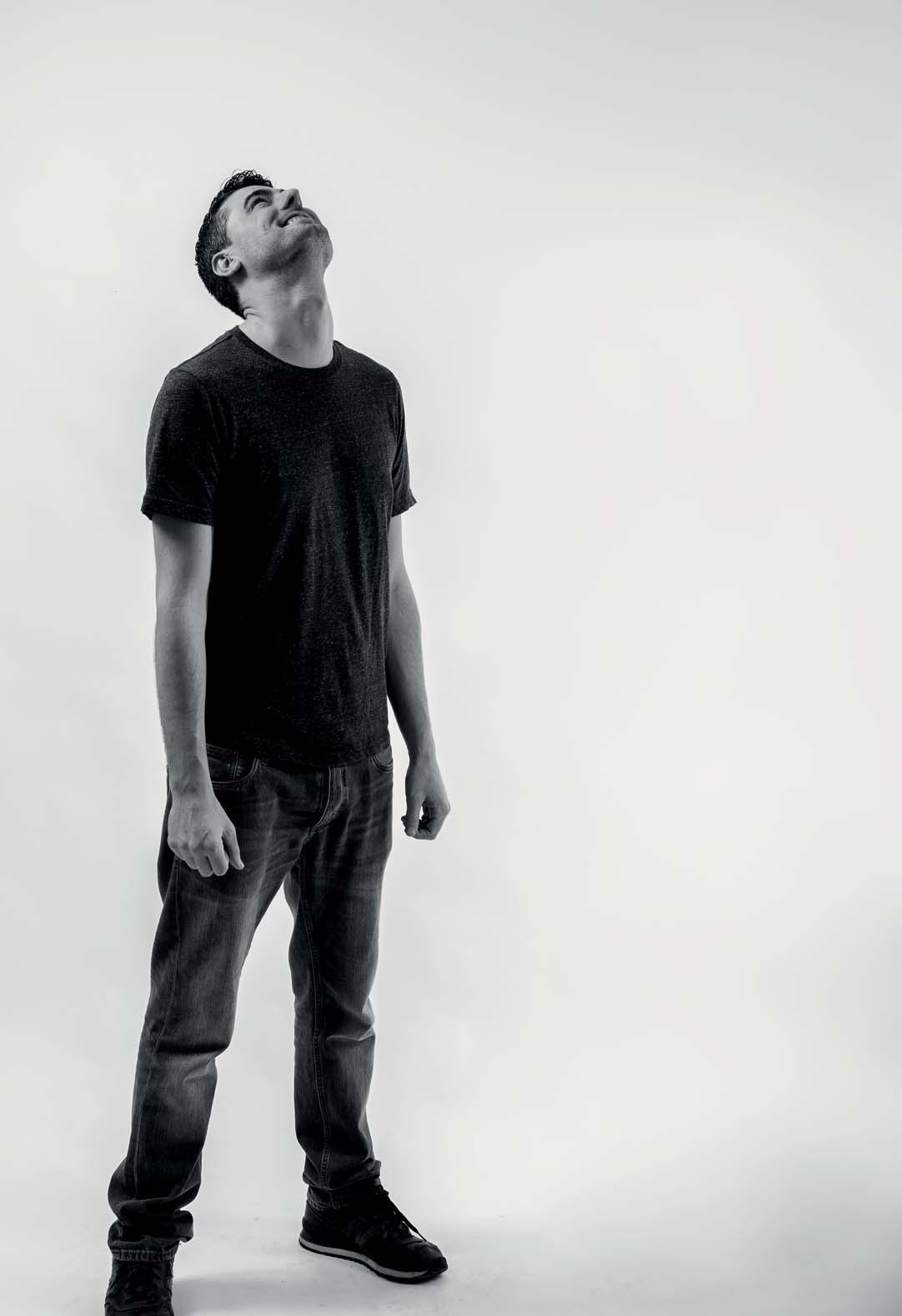




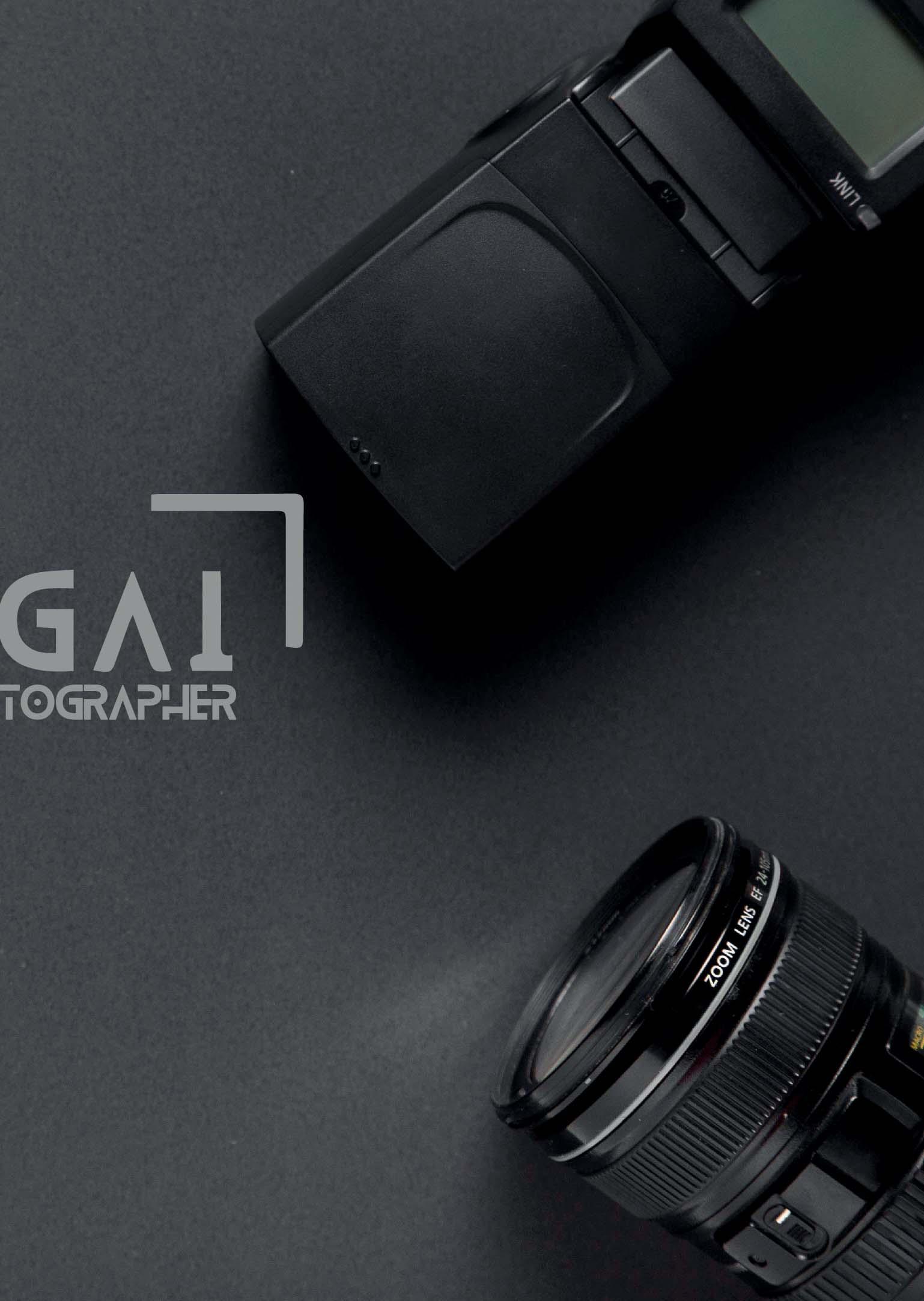
The Evolution of Electronic Music in Valencia: A Journey Through “Génesis”
By Billy Aldea-Martinez & Julián Márquez Rodríguez
In an exclusive interview for Sync Beat Magazine, Billy Aldea-Martinez and Julián Márquez spoke with Pablo Ferrer and Alberto Sola, two prominent figures in Valencia’s electronic music scene. They talked about the creation of their book “Génesis” and the record label “Genesis Music”. These projects not only document the evolution of electronic music in Valencia but also aim to connect generations and pay tribute to the pioneers who shaped this vibrant scene.





The Origin of “Génesis” and the Inspiration Behind the Book
- The idea for the book was proposed by Alberto Sola, a DJ and producer from Valencia, who had been part of the Sincopat label for several years alongside DJ and producer AFFKT. Alberto identified the need to document a forgotten and little-explored stage in the history of electronic music in Valencia. He invited Pablo Ferrer, a journalist, writer, and author of La Santísima Trinidad: El sonido del pop electrónico de masas—a book documenting the influence of Depeche Mode, New Order, and Pet Shop Boys. Pablo, also a promoter and electronic music enthusiast, teamed up with Alberto to combine their knowledge and information on the history of electronic music in Spain. Initially skeptical of the topic’s relevance, Pablo was won over by Alberto’s passion.
Alberto Sola, DJ and music producer, explains that electronic club music had reached a point where this history needed to be recorded. Valencia, in particular,
had a unique evolution due to the “bakalao” phenomenon, a style that dominated the local scene between 1993 and 1996 before giving way to an explosion of new styles like house, techno, and ambient.
The Era of Bakalao and Its Impact
- Bakalao is a genre of electronic music that originated in Valencia, Spain, in the early 1990s and peaked during the first half of that decade. This style, exclusively known in Spain, started by blending different sounds such as techno, gabba, and hardcore, completely replacing the diverse sounds of the late 80s, including rock, industrial, gothic, synth-pop, and electronic body music (EBM).
Characterized by fast, repetitive rhythms along with edited voices and sounds, bakalao often included parodies and tributes to contemporary themes and characters, employing drum machines, samplers, and synthesizers like other electronic styles.



This shift in musical consumption was driven by the arrival of new, more chemical drugs that required higher BPMs.
The “ruta del bakalao” was a phenomenon in the 90s where clubbers from across Spain would visit various iconic clubs in the Valencian region, such as Chocolate, Espiral, The Face, NOD, Barraca, A.C.T.V., Spook, Puzzle, and Heaven, enjoying non-stop electronic music sessions for up to 72 hours.
This style left a deep mark on the decade, becoming the favorite of an entire generation. The dominance of bakalao during those years was so complete that, as Alberto recalls, vinyl records of new genres available in Valencia’s record stores were sold at clearance prices. Though considered repetitive and of questionable quality by some, bakalao acted as a “blockage” that prevented new trends from arriving in Valencia. However, when it began to fade, it opened the door to a flood of new sounds that captivated electronic music fans in the city. This rapid and massive transition is the
central theme of the book Génesis: Escena Clubber Posbakalao en la Comunitat Valenciana. 1996-2010, which documents this fascinating period.
The Creation of the Book, the Methodology, and the Challenges
The creation of the book was an arduous and meticulous process, as it is one of the few works documenting the oral history of Valencian culture in relation to electronic music. Between the summer of 2022 and the summer of 2023, Pablo and Alberto conducted over 40 interviews, which they then carefully transcribed and selected to construct a coherent narrative. They also incorporated well-researched introductions in each chapter to place the reader in the context of European and Spanish electronic music at the time.
The book Génesis covers the period from 1996 to 2010, following the peak of the Valencian bakalao, during which new global electronic music influences such as drum & bass, trance, minimal, electro, house,




and techno began to establish themselves in the Valencia region, leading to a renewed and vibrant club scene. This evolution was driven by both the major clubs, which allowed DJs to gradually introduce new genres to the saturated bakalao sound, especially house, and by entrepreneurs and promoters who focused on dance nights centered around these innovative sounds.
However, genres like trance and techno took longer to establish themselves in Valencia, as, even though bakalao was losing popularity, the preference for fast rhythms remained strong. Alberto mentions, “The book is about how all these styles landed in Valencia, who were the pioneers, who were the promoters that bet on these styles, who were the first DJs in Valencia to support them, and who were the first of our DJs to go beyond our borders.”
The book was finally published in November 2023 by the Spanish publisher Sargantana, accompanied by several release events where the authors invited both historical
figures from the Valencian electronic scene and new players from the current scene.
Genesis Music: The Next Step and a Tribute to Pioneers - Connecting Generations
Genesis Music is a new record label created to honor the roots of Valencian electronic music, pay tribute to its pioneers, and connect different generations of producers and audiences with a contemporary vision of the scene. The goal of this record label is to build a bridge between DJs and producers from different eras, allowing younger generations to learn from and be inspired by those who laid the foundation for electronic music in Valencia.
This connection is strengthened through events, parties and talks that celebrate the history of electronic music while looking to the future. Pablo comments, “The programming we have at Genesis x Oven is very similar to what we do with the record label, it’s a permanent tribute to different generations, in this case, DJs who




have been spinning in Valencia all their lives.”
The label focuses on high-quality melodic productions without limiting itself to specific genres or fast rhythms. The label debuts with a release highlighting Julio Nexus, a key figure in the history of Valencia’s electronic scene, remixed by Finalversion3, a prominent producer from the new generation and resident of Club Gordo.
Reflecting on the current state of electronic music in Valencia, Pablo and Alberto discuss how the “Remember” trend—a phenomenon reviving commercial electronic music from the 90’s—is blocking the arrival of new trends, similar to how bakalao once did. The audience for these events is usually people who enjoyed electronic music in the 90s, now in their 40s or 50s, who nostalgically remember these now-classic tracks, but which the next generation never got to experience.
This situation is viewed with some sadness, as it limits the potential of current electronic music in the city, considering Valencia’s legacy as a pioneer of the European electronic scene in the 80s. However, today Valencia boasts a vibrant and constantly evolving scene, with a wide variety of clubs, promoters, DJs, and producers of excellent caliber, and a new generation of artists and audiences open to new experiences, influences, and formats.
Final Reflections: A Lasting Legacy
The conversation concluded with a reflection on Valencia’s legacy in electronic music. Despite current challenges, both Pablo and Alberto are optimistic about the future. They are convinced that their work on Génesis and Genesis Music will help preserve and celebrate the rich history of electronic music in Valencia while fostering the growth of new trends and talent.
In summary, “Génesis” is not just a book or a record label; it is a cultural project aimed at documenting, educating, and connecting. It is a testament


to the love of two electronic music enthusiasts and their desire to keep alive a story that deserves to be told and celebrated.
The first event organized by Alberto and Pablo will be their Genesis event series at the Valencian club Oven, where they will host local DJs like Danny Fiddo, Víctor Polo, and Jorge Cardona, for October 5 and 19, 2024.
About de Billy Aldea-Martinez
Billy has been in the electronic music industry since discovering techno at 19, evolving his career as a DJ, record label producer, record label executive producer and working the SaaS as global commercial director. As a journalist he has lived in New York as a photojournalist for Australia’s top financial newspaper. Today, he continues his passion for music while investing in technology and media companies as an entrepreneur, with his focus at the intersection of music, media, technology, and entrepreneurship.
About de Julian Márquez
Julián is a lawyer with extensive experience advising cultural and musical projects. After nearly a decade working for government organizations in tourism and cinema, he recently graduated from the Master’s Program in Global Entertainment and Music Business at Berklee College of Music, with a focus on record labels, A&R and artist development in electronic music. He is currently based in Valencia, Spain.







Ertan Koculu is an International Dj & Producer from Turkey) that has released at top labels like Row Records, Exx Underground, Exx Muzik, Univack Records. Radio Host & author of his own radio show on Radio 2020. Owner and cofounder of the label, Row Records. Talented music producer, author of a huge number of top tracks and remixes, he was many times stayed into the BeatPort Top 100 charts.
Hi Ertan! Welcome! It’s a big pleasure to have you with us for answering this interview. You’re originally from Turkey, a country that nowadays is a reference in the electronic music scene… Does it was the same situation in the past?
- Yes. i am From Turkey but last 7 years i am living in Winter & Autumn months in Thailand and in summer
Ertan Koculu likes to navigate into the Melodic House & Techno, Afro House, Organic House, Downtempo & Indie Dance in his production and live dj sets, capturing dance floors all over world. His tracks get in many Popular Dj’s playlists such as Korolova, Tiesto or Hakan Akkus, and played worldwide at more than 70 countries. We think It´s time to know more directly about him…
& spring months In Russia. Talking about the turkish scene, before we had really so much talented producers like Murat Uncuoglu, Hakan Unsal, Sezer Unsal or Mahmut Orhan. These worldwide producers are around 20 years in this industry but in the last 5 years in Turkey a lot of Iranian producers started living there…


- INTERVIEW -
Can you share some moments or experiences what inspired you to develop your career as artist?
- More than 25 years i am interested in Electronic Music. When i was in the university i was booking worldwide Dj´s and preparing events in Istanbul. When COVID -19 quarantine started, i started to be more focused to producing and developing myself in producing my own music.
How have these experiences influenced you in shaping your sound and approaching to DJing?
- From the 18 years, I was listening house music. First, started with Acid but when Faithless came to Istanbul for an event I was only 19 years old and I felt in love with House music and decided to be a Dj and got addicted to music. During many years I developed also myself and understood more what about my taste. Last years, I am more Interested in Melodic Techno and House, Indie Dance and Afro House.
Tell us about your roots into the production. It sounds from your
tastes that you were into lots of other different sounds and scenes before. What were some key formative moments in your musical evolution?
- I love to use Ethnic melodies. Sometimes hearing only a voice, it can be an elephant scream or an ocean wave or a beat, I start thinking how it can be inside a track.
Sometimes, I am not producing anything for days and suddenly, I can wake up at 4:00 am and what I heard in my dream, I am drawing in Studio FL and during the morning track is ready!
We pretty know that you are the owner, co-founder and label manager of Row Records, a digital label based in Canada. Why did you decide to create it there?
- After my 19th release I understood that I had already enough experience about labeling. And also I was hearing that many producers were making releases but cannot receive the payments from labels, or not receiving the right amount. I decided -with my best friend Hakan Akkus- to open a label and


-
help producers for release and let them earn and receive what they have to receive. Also, because our distributer is from Canada and the taxes are lowest in Canada. (small wink)
What does Row Records bring to the electronic scene? Who are the most relevant artists that are taking part at Row Records?
- Row Records a new label -almost 3 months- but already have around 100 tracks released and now iit has many tracks in the Beatport Charts. Me and after Hakan Akkus, King a.k.a Sampleking, Bugra Yilmaz, Nursultan Kun, Onur Ensert, Neo-P9, Tuny, Mark Lennon are the producers who are always staying in TOP 100 Charts.
According yo this, what is the dynamic between you -when alone or while working with your friend Hakan Akkus- in the studio? Do you have strengths and weaknesses and distribute the work according to that? Or do you (or both) just fly with the moment?
- We mostly be together but even we make it alone, we listen and make finishing together. Sometimes I cannot see the right touch for finishing but he can see or he needs a final touch and I see it.
What’s the secret behind your ability to connect with the audience meanwhile your performances?
- I feel so much the music, all my tracks have a meaning, Some tracks, i wrote to my kids, when i got upset or when i fall in love or when i have a broke. That is why all tracks come from my soul. That is why when i play, i fell what i play and give my all concentration.
How do you go about curating your sets and tracks to create this unique atmosphere?
First of all I give big attention to my sets. Before performance I spend min 2 hours to prepare. I make the list with maximum dynamic formules. And also the place and playing hours is very important for choose of tracks.


And what are you up to currently? What are your targets for the next 2025?
- For the next his year my biggest aim is make growing Row Records. I want to see minimum 5 tracks up in top 10 in the same week. I have already 40 tracks and want to make 60 until end of 2025. I want to hear my tracks to be played worldwide in all digital platforms.
How do you see Electronic Music evolving in the upcoming years?
- Technology is developing and the quality is better every year. Only what I see is a lot of people taking Dj lessons and thinking that they are Dj´s. But their only aim is to make a good post or story in the social media platforms. I think this is now only “fashion” to be a Dj .
And for ending this interview… First…what kind of advice would you give to aspiring DJs and musicians who are looking to be into the electronic music industry? Second…Would like to add one more topic we were not talked during the interview?
My first advice. learn how to lay with dynamics and formules. Don´t play what you “Shazamed” or only heard in radio. Follow the Top 100 charts every week, Make groups for sets from genres and keys. Each set has to be a planning. You cannot play Key D major track after a D Minor key track. It drops the mood. But if you don’t know what is D Minor or how you learn, than mention it on your Instagram profile “I am a Dj”.
Thanks a lot again for having time to be with us, Ertan…Would you tell something directly to our readers?
- Techno is passion. Music is the biggest therapy. Never take out music from your life. Thanks for this interview!






Berlin-based DJ and producer Macon returns with his latest release ‘Bulletproof’ on the esteemed Spinnin’ Records and Crash Your Sound labels. This new single reimagines La Roux’s 2009 synthpop hit, infusing it with Macon’s signature high-energy sound that blends elements of Eurodance and hard house.
‘Bulletproof’ showcases Macon’s ability to breathe new life into iconic tracks, a talent that has become his hallmark. The track maintains the catchy essence of the original while
amplifying its energy with pulsating beats and intense rave production.
Fans of Macon, La Roux and dance music alike will find ‘Bulletproof’ a thrilling fusion of nostalgic pop and cutting-edge club sounds. Macon has rapidly risen through the ranks of the electronic music scene, earning acclaim for his pioneering work in the hyper-techno genre. His remixes have garnered millions of streams, with standout tracks including reworks of Lady Gaga, Jason Derulo, and more. Macon’s production skills have earned him






a Grammy nomination for his work on the Kx5 album track ‘Avalanche,’ and he has worked with industry titans such as Oliver Heldens, Sander van Doorn, and Tiësto.
With ‘Bulletproof,’ Macon continues to push the boundaries of electronic music, offering a fresh take on a beloved classic. This summer release on the respected Spinnin’ and the prolific Crash Your Sound promises to further cement Macon’s reputation as an innovative force in the global dance music landscape.






Rebrn is an artist who is revolutionizing internationally the scene with his track “Contigo” and he has many interesting topics to talk with us in this interview. He recently performed at one of the most important festivals in Eastern Europe, the “Trip Festival 2024”, where he “literally blew up” the dance floor. Sync Beat Magazine was able to see it personally and certify it…
You’re from TelAviv (Israel) and coming from a “special” city in electronic music… have you encountered unique challenges, opportunities or dares on it there? How do you navigate and contribute to the diversity of the genre you are in?
- Tel Aviv is completely a city of nonstop nightlife. One of my challenges personally is that I’m not one to hang out and mingle with party producers and club owners on a daily basis, I chose family life and thank God I have 2 babies and a wife at home. I let my music do its thing and bring
me to the front of the stage, I know I miss things along the way because it’s important to mix but this is my life and I’m happy about it :)
I think one of the most important things for me as an artist is to do what I like first, if the audience likes it will be a bonus for me. I don’t try to follow what most of the city and producers do and I try to make my sound stamp accessible in every track.


Your journey in the music industry has been quite remarkable, amassing a long amounts of streams and performing at prestigious events. Can you share some insights into what inspired you to pursue a career in music and how you’ve reached this level of success nowadays?
- I think what always inspired me and gave me the strength to continue my musical career was first of all the unceasing support of my parents (even though they never understood what I was doing in my small room with a pair of monitors and a sound card) and in addition that I really wanted to do what I love. I couldn’t find myself working any other day job as an employee, I would always try to escape to music. Sometimes in order to make a living from music I also did things that I less wanted to do but I preferred to engage in them than to engage in other things, I knew that a day would come when I could only do what I want and loved. Success comes with continuous action. I sat in the studio, made a lot of music and released it to the world. The rest
just happened together with the support of many world-class DJs.
You’ve played at some of top festivals like “Trip Festival 2024” and filled club rooms, national & internationally. What’s the secret behind your ability to connect with the audience and create such high-energy performances?
- During my career as a DJ I experienced different types of venues and played a wide variety of genres, this is something that taught me a lot about reading an audience and understanding that music is psychology and I need to know what “medicine” to give people on the dance floor. So the big “secret” is simply to play and experience as many different stages and types of audiences as possible.
The electronic music has a rich history… How have this history influences in shaping your sound and approaching to DJing?
- The history of electronic music influenced me mainly as a producer, at the beginning of my journey I would listen to a lot of music that


I like and try to re-produce it for training purposes. It’s something that gave me a lot of understanding to know how to get the results I want and what kind of sound and tone I like.
You’ve performed at a variety of events. Could you share some memorable moments or experiences that stand out in your career so far?
- At every event I gain new experiences, but I think one of the special events I attended was in Brazil at the Park Art club. The audience was really warm and responded to the music in an amazing way and it was a way to realize that my music and sound work very well on big stages
You’ve shared stages with top artists and performed beside them. What were these experiences like, and how do you prepare for such significant performances?
- It’s always fun to share the stage with great artists. Sometimes when there are very important sets I make sure to sit before and think
about what will suit me to play and what I don’t want to miss, I don’t like to determine in advance 100% what I’m going to play because as I answered in question 3, you always have to read the audience and react according to the situation. So in principle self-reinforcement and reminding yourself that you are good and not just that you are on stage right now.
Your famous track “Contigo” has received a massive support from a big amount of artists/audience and described as perfect for setting aa a real party vibe. How do you go about curating your sets and tracks to create this unique atmosphere?
- When I produced “Contigo” I tried to think of a track for a central hour and something that could be a hit, because this vocal is very catchy and needs a track with a very energetic and kicking character. I’ve always been very attracted to energetic music, so most of my sets bring a more “party” energy.
What can we expect from REBRN in the future? Are there any exciting projects, collaborations, or tracks that you can share with us?
- I can say that by the beginning of 2025 there are 2 tracks that will be released on a very big and respected label in the world. Beyond that,



Måneskin bassist Victoria signs with electronic music label noted. Records for her DJ solo project, reaffirming her creativity and music versatility
Victoria partners with Brazilian superstar Anitta for feverish club banger, ‘GET UP BITCH! Shake ya ass’!
noted. Records, the electronic imprint of Sony Music Entertainment (SME) Germany, in collaboration with Sony Music Italy, is thrilled to announce the exciting signing of Victoria de Angelis, aka Victoria, the renowned bass player from Måneskin, who releases her debut single ‘GET UP BITCH! Shake ya ass’ on the label, in collaboration with Brazilian superstar Anitta.
‘GET UP BITCH! Shake ya ass’ marks a heavy-hitting start for Victoria on her newly found home at noted. Records. The jarring techno cut catapults the senses with a quickening pace, primed for emboldened techno stompers, whilst Victoria’s decision to pair up with Brazilian sensation Anitta, freeing her up to unleash gnarly topline vocals filled with rage, sees her journey through her inspirations of baile funk to the






